90 Questions to Ask After a Presentation
Have you ever found yourself mulling over a presentation, wishing you had a treasure trove of questions to uncover the speaker’s insights and wisdom fully?
The right question isn’t just a follow-up; it’s a key that unlocks a deeper connection with the topic. This guide is designed to arm you with a curated collection of inquiries that will enhance your understanding, invite valuable discourse, and help you to apply what you’ve learned.
Let’s dive into the art of the post-presentation conversation and transform every ending slide into an opportunity for continued learning and engagement.
Table of Contents

Clarifying Understanding
- Could you elaborate on the main thesis of your presentation?
- What inspired the topic of your presentation?
- Can you summarize the key points you’d like us to take away?
- Is there an aspect of your presentation you think deserves deeper understanding?
- How does your presentation relate to current trends or issues in the field?
- Were there any counterarguments or challenges to your points that you didn’t mention?
- In what way does your presentation build on or differ from existing research?
- Could you clarify the methodology behind your study or findings?
- How would you explain the significance of your findings to a layman?
- Is there a particular slide or section you can revisit for further clarification?
- Could you give an example that illustrates your point about [specific detail]?
- What were the assumptions underlying your analysis or argument?
- How do definitions used in your presentation compare to industry-standard ones?
- Can you clarify the statistical significance of your data?
- Where might we find more information on this topic if we wish to understand it better?
Digging Deeper into Content
- Can you expand on how your findings compare to similar studies?
- How might emerging technologies impact the relevance of your findings in the future?
- Are there ethical considerations linked to your presentation topic?
- What are the limitations of your research, and how can they be addressed in the future?
- How can your research be applied in other fields or industries?
- In what ways do your findings challenge conventional wisdom?
- Could you walk us through the process of how you collected your data?
- How would different theoretical frameworks affect the interpretation of your results?
- What unanswered questions remain after your presentation?
- How do you expect the discussion on this topic to evolve in the next five years?
- What are the implications of your findings for policy or practice?
- How does cultural context play into the outcomes of your research?
- Can you discuss any relevant case studies that connect to your presentation?
- What follow-up research would you recommend based on your work?
- In your research, what was the most surprising discovery you made?
Gathering Practical Applications
- How can we apply your research findings in our everyday work?
- What steps can organizations take to implement your recommendations?
- Can you suggest tools or resources for applying the insights from your presentation?
- How might your research influence day-to-day decision-making?
- Could you provide a real-world example where your findings have been put into practice?
- What are the short-term and long-term benefits of applying your findings?
- Who stands to benefit most from the practical applications of your research?
- Are there certain industries or sectors where your findings are particularly relevant?
- How will applying your findings change existing systems or processes?
- What are some common obstacles to implementing your research, and how can they be overcome?
- How do you recommend staying up-to-date on applications in your research area?
- Can you suggest partner organizations or groups that are working on applying these concepts?
- What measures can be put in place to evaluate the efficacy of applying your research?
- How do you foresee your findings impacting future innovations?
- What action can individuals take to support the practical application of your research?
Providing Constructive Feedback
- I found [specific point] very compelling; have you considered expanding on this?
- Your presentation makes a strong case for [topic]; how could it be enhanced with additional data?
- I noticed [aspect] during your presentation; could this be a point for further refinement?
- The visual aids were helpful; have you thought about using more interactive elements?
- The section on [specific area] was very informative; how can it be made more accessible for beginners in the field?
- In terms of delivery, would you be open to exploring other formats for your presentation?
- Your research draws important conclusions; how else might you support them?
- The pacing of your presentation was effective; could you use a similar approach to emphasize other key points?
- Given the complexity of your topic, have you considered a follow-up session or workshop?
- What additional resources or readings would you recommend to enhance our understanding of your topic?
- Your narrative was engaging; might there be a way to incorporate more storytelling?
- How might audience participation be facilitated in future presentations to enhance understanding?
- Were there alternative viewpoints you debated including in your presentation?
- How did you decide on the structure of your presentation, and what could be changed to improve it?
- Is there a component of your research that you feel requires more visibility or discussion?
Fostering Engagement and Discussion
- What questions do you have for the audience that might help further the discussion?
- How can the audience keep the conversation going outside of this presentation?
- Are there forums or networks where this topic is actively discussed?
- Could you propose a thought experiment or hypothetical scenario for us to consider?
- How can we encourage more interdisciplinary dialogue on this subject?
- What common misconceptions should we address to clear up understanding?
- In your opinion, what are the most controversial aspects of your topic?
- How can we contribute to the body of research or thought around this subject?
- What role can non-experts play in the discussion of these findings?
- Can you suggest a way to create a community or collective around this area of research?
- How would you like to see this information shared or disseminated?
- What would be an ideal outcome of the discussions that stem from this presentation?
- Are there collaborative projects or initiatives we could start as a result of your findings?
- Would you be interested in hosting a series of discussions to delve deeper into certain aspects?
- How do you suggest we handle differing opinions or debates that arise from your topic?
Exploring Next Steps and Actions
- Based on your research, what should be our immediate action?
- What are the first steps to be taken for those who want to delve deeper into this topic?
- Who should be contacted or involved in further development of this topic?
- Are there upcoming events or conferences where this topic will be featured?
- What can we do as individuals to further the research or findings you presented?
- How can we best track the progress and development in this area?
- What practical steps would you recommend for a follow-up study or project?
- Could you outline potential obstacles we might face in advancing this topic and how to overcome them?
- Are there policy changes or advocacy needed to move this conversation forward?
- How can the general public be engaged in the action steps related to your findings?
- What are the most critical areas for immediate exploration or action?
- Is there a need for collaboration with other disciplines to advance this topic?
- How can educators integrate your findings into their curriculum or teaching?
- What funding opportunities should be looked into to support further research?
- How can we measure the impact of the actions taken as a result of your presentation?
Frequently Asked Questions
Can i provide feedback on the presentation style as well as the content.
Yes, but always aim to be constructive and polite. Feedback on presentation style can be as valuable as feedback on content.
What should I do if my question isn’t answered during the Q&A session?
If time runs out, try approaching the presenter afterward or sending a follow-up email with your question.
How can I encourage a discussion rather than just a Q&A session?
Ask open-ended questions that invite the presenter or audience members to share thoughts and perspectives, thus fostering a more interactive dialogue.
Final Thoughts
And there you have it—a comprehensive guide to quenching your intellectual curiosity and contributing valuable insights after a presentation. From uncovering the nuances of presented content to setting the stage for future collaboration, asking these questions ensures that no stone is left unturned.
Remember, the journey of understanding and exploration doesn’t end with the closing slide; it’s merely the beginning. Now, go forth and turn those questions into conversations that matter!
How useful was this post?
Click on a star to rate it!
As you found this post useful...
Share it on social media!
We are sorry that this post was not useful for you!
Let us improve this post!
Tell us how we can improve this post?

Bea Mariel Saulo
404 Not found
350 Top Q&A Questions to Expect for Any Presentations (Save Them Now!)
Zhun Yee Chew

Preparing the slide content is nothing compared to dealing with daunting questions during the Q&A session of a presentation. Sometimes, if we are not lucky, we will face a tough crowd with even tougher questions that may leave us feeling challenged on the spot. And none of us likes the awkward moment of not being able to provide a satisfactory response to the audience.
Answering Q&A questions is a skill that everyone can master with the right resources and the right amount of preparation. You’ve searched, and we have them for you.
In this article, you will find more than 300 Q&A questions that are most commonly asked in a wide range of presentation occasions. Save them so you can be ready for even the most unexpected questions in your upcoming presentations!
What Are Q&A Questions?
Q&A questions, short for “Questions and Answers”, are inquiries posed by an audience or participants to the speaker or presenter during the Q&A session of a presentation . This Q&A segment typically follows a presentation, a talk or a lecture, providing the opportunities for the audience to seek clarification, ask additional information, or understand the speaker’s perspectives.
The whole point of Q&A sessions is to make the presentation more interactive and foster engagement . It’s a chance for the audience to pick the speaker’s brain and get a better understanding of the subject.
What Are the Different Types of Presentations?
Business Presentations:
- Sales pitches
- Quarterly or annual reports
- Performance reviews
- Project proposals/updates
- All-hands presentations
Academic Presentations:
- Lesson presentations
- Conference/research presentations
- Classroom quiz games
Training Sessions:
- Employee training
- Onboarding sessions
- Skills development workshops
Public Speaking:
- Motivational speeches
- Commencement addresses
Informative Presentations:
- How-to presentations
- Demonstrations
- Informational sessions
Social Events:
- Celebration speeches
- Team-building activities
- PowerPoint nights
- Presentation games
Technology Presentations:
- Software launches
- Product launches
Crisis Management:
- Crisis communication
- Emergency response briefings
- Contingency plans
Virtual Presentations:
- Online conferences
Different presentations involve different audience types, and the nature of questions posed can vary significantly based on presentation formats and occasions. However, the core of a successful and engaging presentation remains constant – ensuring interactivity in a presentation and transforming it into a two-way street through Q&A questions and adding interactive elements or using interactive tools in your presentations.
Academic Presentation Q&A Questions
Q&a questions for lecture presentations.

- Can you provide more examples for the concept/theory you just explained?
- Are there any common misconceptions about this topic that we should be aware of?
- What are the main differences between this and [related topic]?
- Can you explain the steps involved in [specific process] in more detail?
- What are the current research trends or developments in this field?
- How does this concept connect to what we learned in the previous lesson?
- Are there any alternative approaches to solve the problems here?
- Can you recommend additional resources or readings?
- Can you provide some tips for studying this material effectively?
- Are there any real-world examples where this concept has been successfully applied?
- What are the most common mistakes students make when working on assignments for this topic?
- Can you explain the significance of this concept in the context of future careers?
- What are the ethical considerations associated with the topics we are discussing?
- Are there any current debates or controversies related to this topic?
- How does this topic connect with interdisciplinary subjects or other courses?
- Can you share examples of how this concept might be used in different industries or professions?
- Can you summarize the key takeaways of today’s presentation?
- Can you discuss any historical or cultural context that influences this topic?
- How might this information be relevant to current events or societal issues?
Q&A Questions for Academic Conference Presentations
- How did you decide on the research question or topic for your study?
- How did you select your sample or participants, and how representative is it of the broader population?
- Can you explain the methodology you used in your research and why you chose that approach?
- What are the main findings or key results of your study?
- How do your findings contribute to the existing body of knowledge in your field?
- Can you discuss any limitations or challenges you encountered during your research?
- What implications do your findings have for practitioners in the field?
- Can you elaborate on the theoretical framework that guided your study?
- What ethical considerations did you address in your research, and how were they managed?
- How did you validate the reliability and validity of your research instruments or methods?
- How did you address potential biases or confounding variables in your research?
- How do your findings compare to previous research on the same or similar topics?
- Can you discuss any unexpected or surprising results that you discovered during your study?
- How did you handle data analysis, and what statistical methods were employed in your study?
- What alternative explanations or interpretations of your data did you consider?
- How does your research contribute to addressing specific gaps in current knowledge?
- How did you control for potential confounding variables in your research design?
- What recommendations do you have for policymakers based on your research findings?
- How does your study relate to other recent or ongoing research in the same area?
- Are your findings generalizable to different populations or settings?
- How did you ensure the rigor of your data analysis and interpretation?
- What role did collaboration play in your research, and how did you handle disagreements within the research team?
- Can you share any unexpected challenges you faced during the research process?
- How might your findings be applied in a practical context, such as in industry or education?
- How did you establish the validity of your conclusions in light of potential bias or subjectivity?
- What potential areas for future research did your study uncover?
- Can you discuss the relevance of your research to current global or societal issues?
- How did you handle any limitations in available resources or funding for your research?
- What key takeaway message or lesson would you like the audience to remember from your presentation?
Q&A Questions for Student Presentations
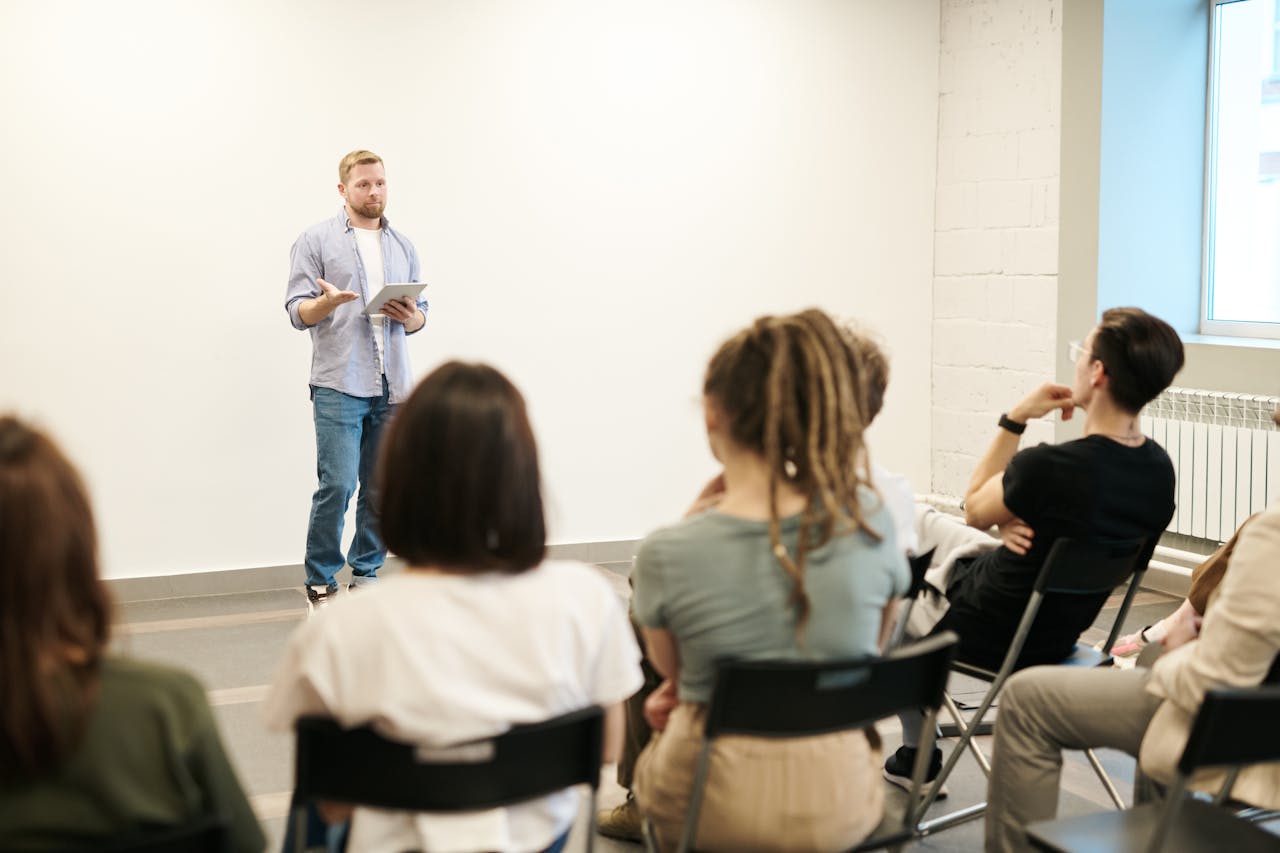
- Can you elaborate on the research process you used to gather information for your presentation?
- Can you discuss the process of selecting and organizing the visual elements in your presentation, such as charts or graphs?
- How did you decide on the topic or key elements to include in your presentation?
- What challenges did you encounter while preparing for your presentation, and how did you overcome them?
- What did you learn about the topic that surprised you during your research?
- Can you explain the significance of your topic or its relevance to the course content?
- Can you discuss any alternative perspectives or counter-arguments related to your topic that you considered?
- What sources did you consult to ensure the accuracy and reliability of the information presented?
- Can you explain the connection between your topic and current events or real-world applications?
- Can you share any specific examples or case studies that support the points you made in your presentation?
- Can you elaborate on any implications or applications of your findings beyond the scope of your presentation?
- Can you discuss any ethical considerations related to your topic that you addressed in your presentation?
- How might your presentation contribute to the understanding of the broader course themes or objectives?
- What aspects of the presentation are you most proud of, and what would you do differently next time?
Q&A Questions for Project-Based Lessons

- What is the main goal or objective of this project, and how will our work contribute to it?
- Can you provide more details about the criteria for success in this project?
- How will our progress be assessed, and what are the key milestones or deadlines?
- Can you clarify the roles and responsibilities of each team member in the project?
- Are there specific resources or materials that we should use or reference for this project?
- Can you provide examples of successful projects from previous classes or students?
- Are there specific presentation or communication requirements for showcasing our project?
- What opportunities for feedback and revision will be available throughout the project timeline?
Business Presentation Q&A Questions
Q&a questions for sales pitches.

- What makes your product or service different from competitors in the market?
- Can you provide some specific examples of companies or clients who have successfully used your product/service?
- How does your product/service address specific pain points or challenges that customers commonly face?
- Can you share some success stories or case studies related to your product/service?
- How does your product/service integrate with existing tools or systems our company uses?
- What kind of support or training is provided to customers after they purchase your product/service?
- Can you explain the implementation process and how quickly we can expect to see results?
- Are there any customization options available to tailor the product/service to our specific needs?
- What kind of ongoing maintenance or updates does your product/service require?
- How do you ensure the security and privacy of our data when using your product/service?
- Are there any limitations or restrictions we should be aware of when using your product/service?
- How often do you release updates or new features to your product/service?
- Can you explain the scalability of your solution and how it can grow with our business?
- What is your company’s roadmap for future developments or enhancements to the product/service?
- What is the typical return on investment (ROI) that your customers experience after implementing your product/service?
- How do you handle issues or challenges that may arise post-purchase?
Q&A Questions for Work Presentations

- How does your proposal align with our company’s overall goals or strategic objectives?
- What potential challenges do you foresee in implementing this plan, and how do you plan to address them?
- Can you explain the specific roles and responsibilities of each team member involved in this project?
- What kind of timeline are you envisioning for the different phases of this project?
- Have you considered alternative approaches to achieve the same goals, and if so, what are they?
- What resources, budget, and manpower will be required to execute this plan successfully?
- How do you plan to measure the success or effectiveness of this project?
- Are there any potential risks associated with your proposal, and what mitigation strategies do you have in place?
- Can you provide examples of similar projects that have been successful in the past, either within our company or in other organizations?
- How will you keep stakeholders informed and engaged throughout the project lifecycle?
- What kind of collaboration and communication tools do you plan to use to keep the team connected?
- Are there any dependencies or external factors that could impact the timeline or success of this project?
- Can you explain how this project aligns with current industry trends or best practices?
- What are the potential roadblocks or obstacles you anticipate, and how do you plan to overcome them?
Q&A Questions for Performance Review Presentations

- Can you highlight specific projects or tasks where you feel you excelled?
- How have you demonstrated leadership skills and the ability to take initiative?
- Have there been any instances of conflict or difficult situations, and how did you handle them?
- What accomplishments are you most proud of since our last performance review?
- Where do you think you could have performed better, and what challenges did you face?
- How well do you think your current responsibilities align with your career goals?
- What new skills or responsibilities would you like to take on in the next year?
- How have you found the feedback and communication within the team or organization?
- How well do you feel you have contributed to team projects and collaborations?
- Are there ways we can enhance teamwork and collaboration within the team?
- Is there anything we can do to support you better in your role?
- What additional resources or training do you think would benefit you in your role?
- What motivates you in your work, and how can we ensure your continued motivation?
- What steps can we take to help you achieve your long-term career goals?
Q&A Questions for Annual/Quarterly Report Presentations
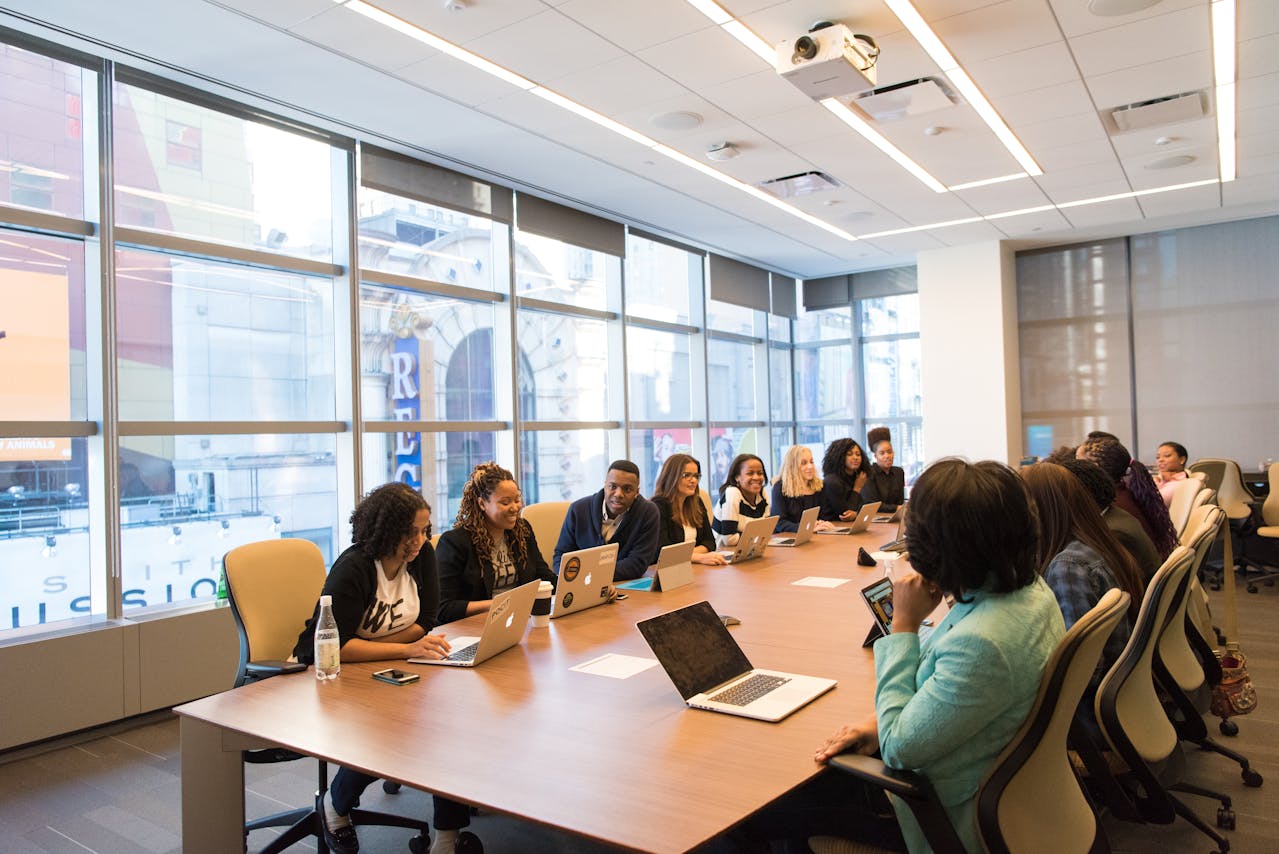
- How did specific projects or initiatives contribute to the overall success or challenges outlined in the report?
- What challenges or obstacles did the team face during the reporting period, and how were they addressed?
- Are there any unexpected or significant changes in the industry landscape that may affect future performance?
- What steps were taken to mitigate risks and uncertainties identified in the previous reports?
- Can you discuss the budgetary implications of the results presented in the report?
- How did the team adapt to changes in customer preferences or demands during this reporting period?
- How do the results align with the long-term strategic objectives of the organization?
- Can you discuss any feedback or concerns received from clients, customers, or stakeholders mentioned in the report?
- How did internal collaborations or cross-functional teamwork contribute to the outcomes presented?
- What initiatives or projects are planned for the upcoming quarter or year in response to the findings in the report?
- Can you elaborate on the return on investment (ROI) for specific marketing or promotional activities mentioned in the report?
- How do the current results compare to benchmarks or industry standards for similar organizations?
- Can you discuss any changes or improvements in operational processes that were implemented during the reporting period?
- Can you provide insights into any potential areas for improvement or focus in the coming reporting period based on the data presented?
Q&A Questions for All-Hands Presentations
- What are the key priorities and goals for the team in the upcoming quarter/year?
- Can you provide more details about the recent changes in team structure or leadership?
- How will recent industry trends or developments impact our team’s strategies moving forward?
- Can you discuss the reasoning behind recent policy changes or updates within the team?
- How will the team address challenges identified in recent performance reports or feedback?
- Can you provide insights into the budget allocation and resource planning for the team?
- How will the team adapt to changes in technology or tools that may affect our workflow?
- What professional development opportunities will be available to team members in the coming months?
- Can you share updates on recent achievements or milestones reached by the team?
- Can you discuss the team’s approach to fostering diversity and inclusion within the workplace?
- What strategies will be implemented to maintain team morale and motivation?
- Can you elaborate on the team’s strategy for managing workloads and preventing burnout?
- How will the team address any challenges related to communication?
- What steps will be taken to recognize and celebrate individual and team achievements in the future?
Public Speaking Q&A Questions
Q&a questions for motivational presentations.

- How did your background or experiences shape your perspective on the topic you discussed?
- How can individuals or communities apply the ideas you shared in their own lives or work?
- What impact do you hope your work will have on the future of [your topic]?
- How has your perspective on [your topic] evolved throughout your journey, and what lessons have you learned?
- How do you suggest we, as individuals, can contribute to or support the goals you outlined in your presentation?
- What advice do you have for someone who wants to get involved in or pursue a similar field or project?
- What are the common misconceptions or misunderstandings about [your topic] that you’d like to address?
- How can the audience stay informed or engaged with ongoing developments in your field or topic?
- Can you share personal experiences where you overcame significant obstacles and found motivation in [an area]?
- What advice do you have for dealing with [a personal issue]?
- How do you handle setbacks and failures in [an area]?
- What daily habits or routines do you recommend for sustaining long-term motivation?
- How can individuals at various career stages benefit from the insights you shared?
- Can you share examples of successful individuals who have been a source of inspiration for you?
Informative Presentation Q&A Questions
Q&a questions for youtube or online webinar presentations.

- How can I access the recording of this webinar for future reference?
- Can you recommend any additional resources for further learning on this topic?
- How does this information apply to different industries or professions?
- How do you suggest we adapt these concepts to our specific organizational context?
- How can we stay updated on new developments or research in this field?
- Can you suggest strategies for overcoming resistance to change when implementing these ideas?
- What role does ongoing professional development play in mastering the skills you discussed?
- How can individuals without a background in this field apply the principles you discussed?
- Can you explain the potential challenges or common mistakes people might encounter when trying this on their own?
- How do you foresee the future trends or developments affecting the subject of this webinar?
- Can you recommend specific tools or software that would enhance our implementation of these strategies?
- What are some key indicators of success when implementing the strategies you discussed?
- Can you discuss any industry standards or benchmarks related to the topics covered in this webinar?
- What would be the first step you recommend for someone looking to implement these ideas in their organization?
Q&A Questions for Demonstration Presentations

- Can you clarify the purpose or goal of the demonstration?
- What specific steps are involved in the process you just demonstrated?
- Are there alternative methods or tools that can be used for this demonstration?
- How long does it typically take to master this skill or process demonstrated?
- Are there any safety precautions that should be considered?
- Can you provide tips for troubleshooting or overcoming obstacles in the demonstrated activity?
- How does this demonstration apply to real-world scenarios or practical situations?
- Are there variations or advanced techniques related to this demonstration that you didn’t cover?
- Can you share examples of successful applications or projects that used the demonstrated technique?
- How does this demonstration align with current trends or innovations in the field?
- What feedback or suggestions do you have for individuals attempting the demonstrated task for the first time?
- Can you discuss any modifications or adaptations that may be necessary for different skill levels or abilities?
Training Presentation Q&A Questions
Q&a questions for training workshops.
- Can you provide more examples or practice exercises to reinforce the concepts you just covered?
- Are there any additional resources or recommended readings for further learning on this topic?
- Can you explain the specific steps or strategies for applying what we’ve learned in a real-world context?
- How often is this training updated to reflect changes in industry standards or best practices?
- How can we track our progress and measure the effectiveness of this training?
- Are there opportunities for practical application or hands-on exercises to reinforce the learning?
- Can you discuss any potential challenges or common difficulties participants might encounter during the training?
- Can you provide insights into how this training aligns with current trends or innovations in the industry?
- How will successful completion of this training impact our professional development or career advancement?
- What kind of ongoing support or resources will be available to participants after completing the training?
- Can you explain the relevance of each module or section of the training to our specific roles or responsibilities?
- Can you discuss any case studies or success stories related to individuals who have completed this training?
- Can you outline the specific skills or competencies participants are expected to gain by the end of the training?
Creative Presentation Q&A Questions
Q&a questions for brainstorming presentations.

- How did you arrive at the ideas presented during the brainstorming session?
- Can you provide more context on the criteria used to evaluate and prioritize the proposed ideas?
- Are there specific goals or objectives that the brainstormed ideas aim to achieve?
- How do the ideas generated align with the overall vision or mission of the team or organization?
- Can you discuss any potential challenges or constraints that may impact the implementation of these ideas?
- What steps will be taken to further develop and refine the selected ideas from the brainstorming session?
- How will the team decide which ideas to prioritize or move forward with?
- What role do you see each team member playing in the implementation or development of these ideas?
- What steps will be taken to test or prototype the most promising ideas before full implementation?
- Are there any potential synergies or connections between the different ideas presented?
- Can you discuss the anticipated impact or outcomes of implementing these ideas on the team’s objectives?
Q&A Questions for Creative Work Showcase Presentations

- What inspired your creative concept or idea?
- Can you discuss your creative process and how you generated or developed your ideas?
- How did you overcome creative blocks or challenges during the project?
- Can you share any unexpected twists or turns that occurred during the creative process?
- What influenced your choice of colors, themes, or visual elements in your presentation?
- Can you discuss any alternative concepts or ideas that you considered before finalizing your creative work?
- How did you decide on the overall tone or mood of your creative piece?
- Can you discuss any specific techniques or tools you used to bring your creative vision to life?
- How do you balance originality with meeting the expectations or objectives of the project?
- Can you elaborate on the symbolism or deeper meaning behind certain elements in your creative work?
- How did you ensure your creative work aligns with the intended message or purpose of the project?
- Can you share any unexpected challenges you encountered while executing your creative ideas?
- What advice do you have for others looking to enhance their creativity or embark on similar projects?
- Can you discuss any future plans or developments related to your creative work?
Q&A Questions for Portfolio Presentations
- How did you curate or select the pieces included in your portfolio?
- Can you discuss the overarching themes or concepts that tie your portfolio together?
- What criteria did you use to determine which projects or works to include in your portfolio?
- Can you provide insights into your creative process for one of the featured projects?
- How do you believe your portfolio reflects your growth or evolution as a professional or artist?
- Can you discuss any challenges you encountered while working on specific projects in your portfolio?
- What inspired the overall design and layout of your portfolio presentation?
- Can you share any feedback or critiques you received during the creation of your portfolio?
- How do you handle showcasing both personal and professional work in your portfolio?
- How do you stay updated on current trends or techniques in your industry, and how does this influence your portfolio?
- Can you elaborate on any technologies or tools you used to create or present your portfolio?
- How do you handle showcasing a diverse range of skills or talents in your portfolio?
- How do you balance consistency with variety in the presentation of your portfolio pieces?
- Can you provide insights into the decision-making process behind the visual and aesthetic choices in your portfolio?
Subject-Based Presentation Q&A Questions
Q&a questions for history presentations.
- Why is it important for us to study this particular historical period or event?
- Can you provide more context on the social and cultural aspects of the time you discussed?
- Are there any alternative perspectives or interpretations of the historical event you presented?
- How did political or economic factors contribute to the events you covered in your presentation?
- Can you discuss the impact of this historical period on contemporary society or global affairs?
- How do historians generally view or interpret the significance of the events you discussed?
- Can you elaborate on any controversies related to the historical topic you presented?
- Can you discuss any parallels or connections between the historical events you covered and current events?
- Can you elaborate on any lesser-known or overlooked aspects of the historical topic?
- What were the main causes and consequences of the events discussed in this lesson?
- How did global events or other regions influence the events in this specific historical context?
- Can you share more details about the key figures or individuals involved in the historical events?
- Can you discuss any social movements or cultural shifts that occurred during this time?
- Were there any controversies or debates among historians regarding the interpretation of these events?
- What primary sources or historical documents can we explore to gain a deeper understanding of this time?
- What lessons or insights can we draw from the mistakes or successes of the past?
Q&A Questions for Geography Presentations
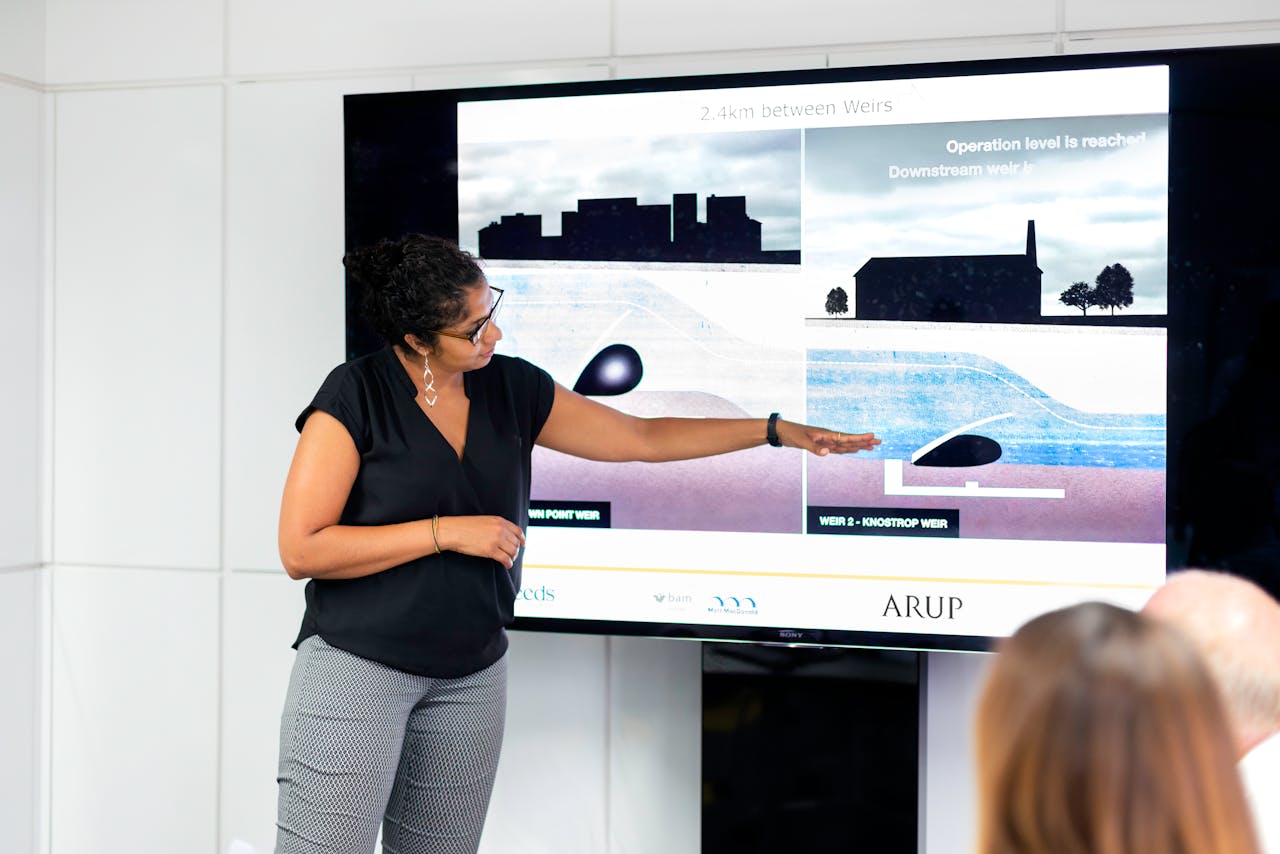
- Can you explain the significance of the geographical features discussed in this lesson?
- What are the cultural or societal aspects that make this geographic area unique?
- Can you discuss the environmental challenges or changes occurring in the region you shared?
- Are there any connections between the geography of a region and its cultural practices or traditions?
- How has human activity impacted the natural landscapes and ecosystems in the region?
- Can you provide insights into the economic factors shaping the geography of the area?
- How do political boundaries or geopolitical factors influence the geography of the region?
- Can you discuss any current or historical conflicts related to the geography you presented?
- Can you share examples of how globalization has impacted the geography you discussed?
- How does the geography of the area influence migration patterns and population distribution?
- Can you discuss any challenges or opportunities related to urbanization in the region?
- Can you provide examples of how transportation infrastructure shapes the geography of the region?
- How do the geographical features discussed impact the local economy and lifestyle?
- Can you discuss the role of sustainable development in shaping the geography of the region?
- How does the geography of a region impact the availability and distribution of resources?
Q&A Questions for Science Presentations
- How does this scientific theory or principle apply to real-world situations?
- Can you provide examples of experiments or demonstrations that illustrate the principles being taught?
- How do current advancements or research in technology influence our understanding of this science?
- Can you provide examples of how this scientific concept has been applied in various industries?
- Can you share insights into any ongoing or future research related to the subject of the lecture?
- Can you elaborate on any potential interdisciplinary connections between this science and other fields?
- How do you see the future developments or advancements shaping the field of science you discussed?
- Can you discuss any recent advancements or breakthroughs in the field related to your presentation?
- What experiments or studies have been conducted to support the information presented in your topic?
- Are there any unanswered questions or areas of uncertainty in the scientific understanding of this topic?
- Can you discuss the importance of peer review in the scientific process?
Q&A Questions for Social Science Presentations
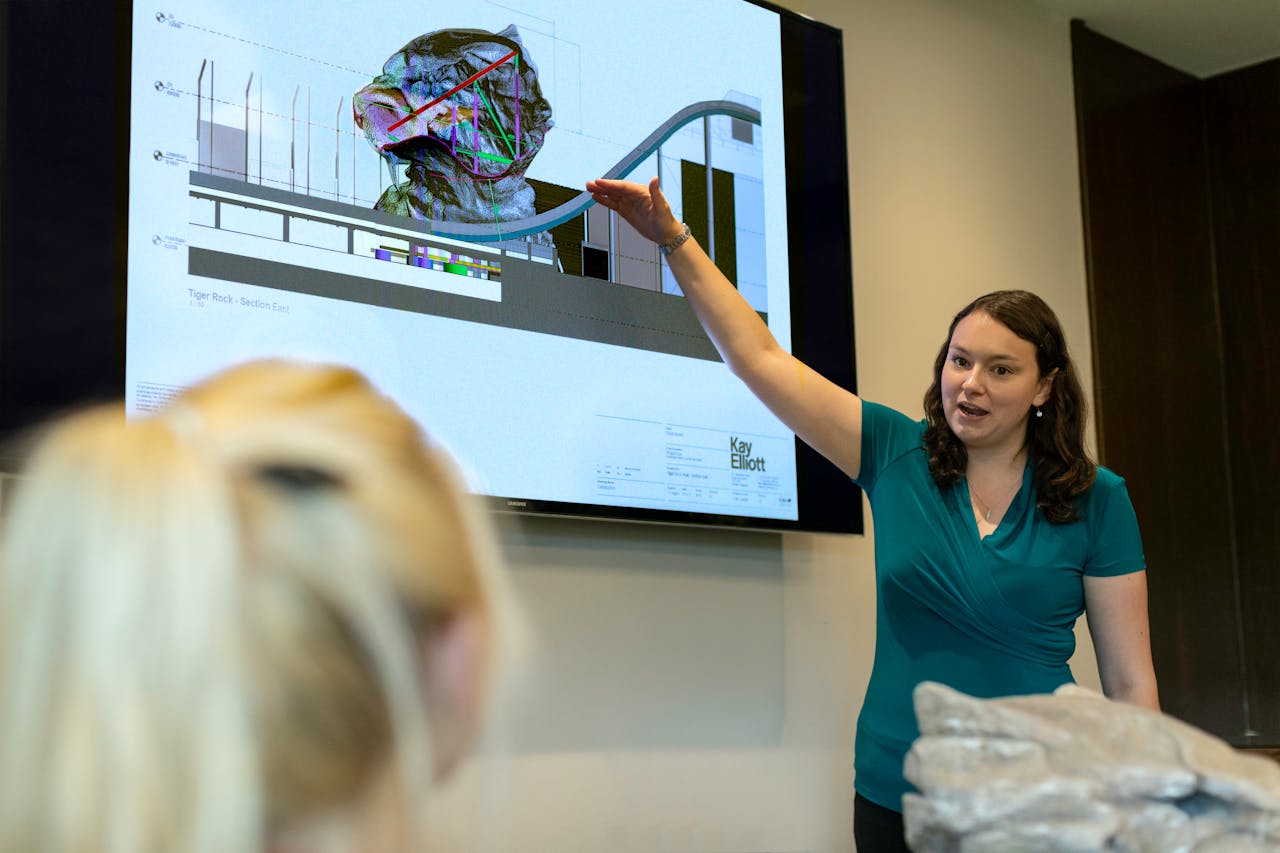
- Can you provide some background information on the topic?
- Can you explain the significance of any statistical analyses or data presented in this studies?
- How might cultural or societal factors influence the interpretation of the findings?
- Are there any primary sources or case studies used in the lesson to illustrate these social science concepts?
- What are the alternative opinions or perspectives that one should consider for this topic?
- How can we critically evaluate bias in the research?
- What are the roles of globalization or international perspectives in this topic?
- Why is [a perspective/opinion] the case?
- What are the potential objections for [a perspective/opinion]?
- How does the topic of this lesson relate to broader social issues or current events?
- Are there any conflicting theories or perspectives within the field related to this lesson’s content?
- Can you explain the practical implications of the theories or concepts covered in this lesson?
- How do the concepts covered in this lesson contribute to a deeper understanding of human behavior or society?
- What are some potential criticisms or limitations of the theories presented in this lesson?
Q&A Questions for Art and Design Presentations
- How do different artistic techniques contribute to the overall aesthetic of the piece?
- Can you explain the cultural or historical influences behind the art or design style being taught?
- How can personal experiences or emotions be expressed through art and design?
- Can you provide examples of famous artists or designers who are known for this particular style or technique?
- How does the use of color, shape, and composition impact the visual impact of the artwork or design?
- Are there any contemporary or modern trends in art and design that relate to the topic of this lesson?
- How does the art or design being taught relate to broader movements or styles in the art world?
- How can art and design contribute to social or cultural change?
Fun Presentation Q&A Questions
Q&a questions for powerpoint night presentations.

- Do you remember the time when we [shared a memorable adventure or experience]?
- What’s your favorite memory from our past travels together?
- If we were to plan a group vacation, what destination would you suggest for our bucket list?
- What’s one place you’ve always wanted to visit that we haven’t explored together yet?
- What’s the most spontaneous or unplanned adventure we’ve had?
- What’s our favorite inside joke?
- If we were to create a time capsule representing our friendship, what would you include in it?
- What’s the craziest or most unexpected thing we’ve ever done together?
- What’s your go-to travel snack or comfort food?
- What’s a shared goal or dream destination you’d like to achieve with the group?
- Can you recall the first time we met, and what was your initial impression of me?
- What’s a skill or talent of mine that surprised you when you first discovered it?
- If our group had a theme song, what do you think it should be and why?
- If we were characters in a movie, how would you describe our dynamic or roles?
- What’s a shared goal or aspiration that you think our group could work towards together?
- What’s your favorite thing about our friendship that you cherish the most?
- If we had a group motto or slogan, what do you think it should be?
Q&A Questions for PowerPoint Games
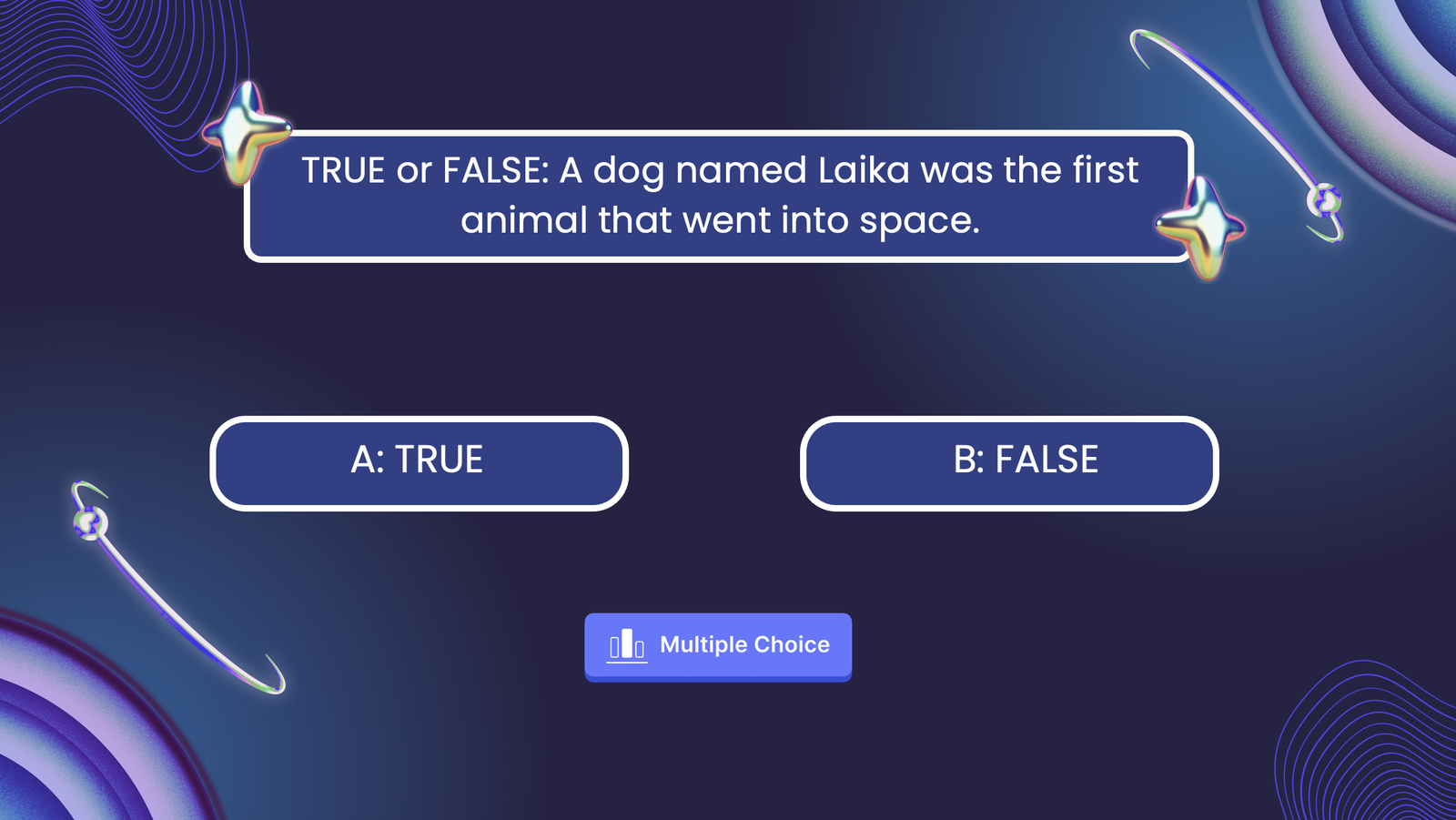
- What are the rules of the game?
- How long is the expected duration of the game?
- Are there any specific materials or equipment needed to play the game?
- Can you explain the objective or goal of the game?
- Are there any hidden surprises in the game that players might not immediately notice?
- Any secret tips for success in the game?
- Are there any special prizes or incentives for winners of tonight’s games?
- How is the game scored, and what determines the winner?
- What happens if there’s a tie in the game?
- Are there any variations or optional rules we should be aware of?
- Can you explain the order of play and how turns are determined?
- Are there penalties or consequences for certain actions during the game?
- Can participants form teams, or is the game strictly individual play?
- Are there any restrictions on player movement or interaction during the game?
- Can you provide examples of common strategies or tactics used in the game?
- How is cheating or rule violations handled in the game?
- Can you recommend any strategies for newcomers or first-time players?
Feedback Q&A Questions
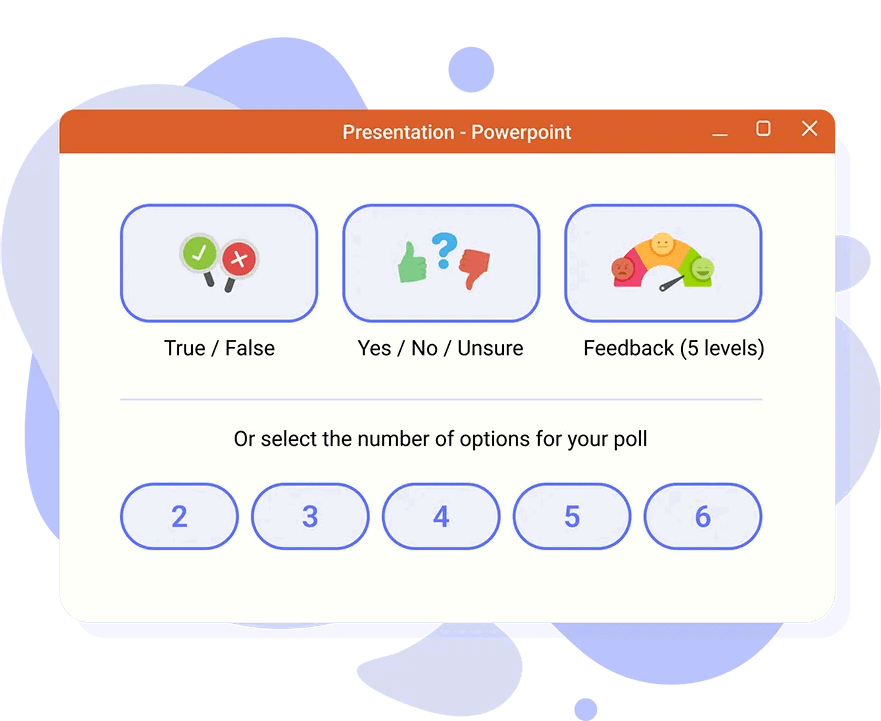
- What specific aspects of the presentation do you think were most effective?
- Can you provide suggestions for improving the clarity of certain points in the presentation?
- How well do you think the presenter engaged with the audience during the presentation?
- Were there any areas where you felt the presentation could have been more engaging or interactive?
- Can you offer insights into the pacing of the presentation and whether it was appropriate?
- What are your thoughts on the visual elements, such as slides or graphics, used in the presentation?
- Were there any technical issues or challenges that affected your experience during the presentation?
- Can you provide feedback on the overall organization and structure of the presentation?
- Were there any moments in the presentation that you found particularly memorable or impactful?
- Did the presenter effectively convey the key messages or takeaways of the presentation?
- How well did the presenter connect with the audience’s level of understanding or familiarity with the topic?
- Can you discuss any specific examples or anecdotes that resonated with you during the presentation?
- Were there any instances where the presenter could have provided more context or background information?
- What are your thoughts on the presenter’s use of language, tone, and overall communication style?
- Can you suggest ways in which the presenter could improve audience engagement or participation?
- Were there any aspects of the presentation that you found confusing or difficult to follow?
- Can you share your overall impression of the presentation and whether it met your expectations?
- What recommendations do you have for the presenter to enhance the overall impact and effectiveness of future presentations?
Closing Thoughts
With more than 300 Q&A questions to help you with your preparation, you can save so much time thinking and anticipating the questions your audience may ask during the Q&A session of your presentation. Now, you can focus on what matters most – acing your presentation!
BONUS: Lazy to create PowerPoint presentations from scratch? Try these 11 top-rated AI PowerPoint generators (they’re free!), as well as these 4 ways to use ChatGPT to create PowerPoint presentations .
About Zhun Yee Chew
Try classpoint for free.
All-in-one teaching and student engagement in PowerPoint.
Supercharge your PowerPoint. Start today.
500,000+ people like you use ClassPoint to boost student engagement in PowerPoint presentations.
404 Not found

Improve your practice.
Enhance your soft skills with a range of award-winning courses.
Guide for Handling Questions after a Presentation
October 19, 2017 - Dom Barnard
The questions at the end of a presentation can be terrifying for many speakers as they can’t be controlled and are hard to prepare for. However, questions form an important part of the presentation for the whole audience as they allow for clarification and consolidation of learning.
The presenter can enhance the usefulness of the question and answer session by treating it as a formal part of the presentation that requires as much careful planning and control as the delivery of the core material.
Identify possible questions and scope in your preparation
The background work that you undertook whilst planning your presentation is the key to handling questions effectively and understanding what type of audience you’ll be faced with. If you have defined a focus for your presentation and have explored this thoroughly in your research and planning, you are more likely to be able to confidently respond to questions.
When planning your presentation, you will need to prepare prompts for questions that are open and straightforward, for example saying “That’s the end of my presentation. I’ll be taking questions for the next 10 minutes”.
You might also want to define topics for discussion before taking questions, by stating the areas you’re willing to field questions in. Your preparation will help you identify topics you are not confident with and want to avoid in the questioning.

Set some rules for asking questions
At the start of your presentation, make it clear when you would prefer to deal with questions – as you go along or at the end of the presentation.
Some speakers prefer questions to be raised as they arise during the presentation. The advantage of this approach is that any misunderstandings can be dealt with immediately. However, there is also a danger that the question will disrupt or distract the speaker, or that questions are raised that would have been covered later in the presentation.
If you leave questions until the end, plan to leave plenty of time for questions so that the audience doesn’t feel rushed.
Framework for responding to questions
Answering questions under pressure can make you say things you shouldn’t have – the nerves can force you to give an inappropriate response. In your panic you might have misinterpreted the question or given away company information that was sensitive. Use the following framework to help you respond effectively to your audience.
Practice answering AI-generated questions on your speech or presentation with VirtualSpeech .
1. Listen to the whole question
You don’t have to answer a question immediately. Pause for a few seconds, actively listen to all parts of the question and think about the best way to answer.
Frequently questions can change direction at the last moment, particularly if the questioner is thinking on their feet. This can throw you if you have already started to prepare an answer. Remember that questioners will frequently try to make a point whilst asking their question – it’s therefore important to both hear the content of the question and try to decipher the questioner’s intention.
2. Understand the context
If you are worried that you haven’t understood a question, ask them to clarify what they mean. Check for confirmation by paraphrasing the question back to the questioner – “You want me to list the improvements of X?”.
3. Involve the whole audience
It is important to remember that even though you are taking a question from one member of the audience, you are still responsible for the interest of the other audience members. This is particularly important in large groups as the audience will become bored if the presentation descends into a series of one-to-one discussions.
To involve the rest of the audience, make sure the whole audience has heard and understood the question by repeating it or paraphrasing it to the audience.
4. Respond concisely
When you reply to a question, direct your answer to both the questioner and other members of the audience. Try to keep your responses as focused as possible, leaving space for other questions. To avoid going into too much detail, check back with the questioner to see if you have answered their query – “Does that answer your question in enough detail?”.
We’ll cover different ways to respond in a later section.
5. Allow follow-up questions via email
You can also encourage your audience to ask questions after the event has finished by providing your email address. This shows a high level of respect for your audience and implies that the topic still has much further scope for enquiry.
Two good resources for handling questions
- What’s the art of answering a tricky question?
- Dodging the Question
Practice Answering Questions
Practice answering questions after your presentation using a 4 step process. Learn More
Options for answering the question
There are five possible choices depending on how well you understand and can answer the question. It’s okay to say that you don’t know the answer to something. This can add to your credibility instead of trying to waffle through an answer you don’t really know.
If you have a good answer for the question from the audience, go ahead and answer it in a short and clear message.
Ask a question back the audience member, such as “Can you clarify what you mean by that”. You can also attack the question if it is not related to the issue, factually inaccurate, personal or based on false assumptions. Be careful with this method.
Ask the question back to the audience or pass it to another panel member if possible. If suitable, another technique is to imply the question has been asked already, with you stating you don’t want to cover old ground.
Tell the audience member you will talk to them after the event. This gives you more time to think of a good answer and there is less pressure to give a perfect answer.
Or mention that that point is coming up in a slide.
This involves answering the question but changing the subject. You can also give a partial answer or give a negative answer, saying that something else will happen instead.
Avoid answering questions that fall outside of the remit of your talk: “I’m afraid that really falls outside of my objectives for today’s presentation. Perhaps we can resume discussion of that particular point later?”

Diagram Explained : Once you receive a question, you’ll have a few moments to think about it and reframe it in a way that makes sense to you. This will give you five choices on how to react – you can answer, reflect, deflect, defer or change the scope of the question. Once you’ve answered concisely, you can then follow up to check if the person asking the question is satisfied and then continue with the presentation.
Strategies to use when struggling to answer
Here are some strategies to use when you are struggling to answer the question posed to you. For more information, read this article on Dodging the Question .
- Acknowledge the question without answering it – “That’s a good question, let’s consider the impact by looking at…”
- The question fails to tackle the important issue.
- The question is based on a false assumption.
- The question is factually inaccurate.
- The question is too personal or objectionable.
- Decline to answer. Refuse to answer on the basis that it is not your area of responsibility or it is sensitive company information – “You will have to ask [name] because I wasn’t involved in that particular project.”
- Partial answer
- Start to answer but change the subject
- Negative answer. You state what won’t happen instead of what will happen
- Answer a similar question
- State or imply the question has already been answered – “We’ve already covered that topic”
Things to avoid
When handling questions and answers, you will still need to be as professional as you have been for the main delivery of your presentation. There are some common dangers to avoid.
Answering the question you wished you’d been asked
A common trick played by politicians, this strategy ignores the precise nature of the question and uses a predetermined answer to the broad topic area. If handled poorly, this technique is very obvious to the audience and frustrating to the questioner.
Giving a lengthy response
This is the process whereby you make a lengthy response, including all the information you’d left out in planning the main presentation. Your unplanned response will be unstructured and rambling, so keep things focused and brief. If you find yourself rambling, ask them to talk to you after.

Passing the blame
Passing the blame to others comes across as weak and evasive. If an idea from the audience is a good one, acknowledge its value. If it isn’t, make a polite rebuttal and move on.
Defensive answers
Occasionally, questions can really put you on the spot, but it is important to remain calm and in control. An aggressive or defensive reply will be seen as weakness on your part and will spoil the effect of an otherwise successful presentation.
Handling difficult questions
It is important not to start responding to a difficult question before you have thought about the answer. Repeating the question and asking for clarification will help create some space for your thoughts.
Sometimes you will need to think about a question for a moment before responding. You may be able to buy a little bit of thinking time to help focus your response. Useful strategies include searching for an appropriate visual aid to help focus your response or simply pausing for a moment or two to think. For even more time, suggest that you’ll come back to the topic later (but don’t forget to do this).
7 myths when answering tough questions during presentations
Sometimes questions are too difficult to answer. Don’t worry about admitting that you don’t know something or haven’t considered an alternative approach. An enthusiastic “That’s an interesting idea, I’d not thought of that” is much more positive than a mumbled “I don’t know ”. Remember that a presentation is a two-way process and it is important to show that you are learning from your audience as well.
Finally, you can come across a questioner who disagrees strongly with your argument. Although this can feel very awkward, remember that you are still responsible for the whole audience and that you cannot allocate all of your question time to one individual.
If you feel that you have answered the initial question, announce that you will move on and suggest that you might continue discussion after the presentation. If the questioner persists, assert your position calmly by saying “I’m afraid I need to move on”.
You can read more on this topic here: Responding to questions effectively (PDF)
The Art of Question & Answer: Handling Audience Questions Like a Pro
Hrideep barot.
- Presentation , Public Speaking

If you have ever given a presentation , you might know how witty and challenging a question-and-answer session can get. Not knowing the answer to a question can be quite unnerving and leave a bad impression even after a fabulous presentation. This blog will help you bridge that gap before your next presentation. We will talk about how to maintain your composure as you deal with questions and also the different types of difficult questions one can face.
Why should I have a Question-and-answer session?
Having a Question and Answer (Q&A) session serves multiple valuable purposes. It transforms one-sided communication into a two-way exchange, turning lectures or speeches into engaging discussions. This interaction not only enhances audience engagement but also promotes collaboration and the collective building of knowledge. Historically, great questions have driven innovation and change, such as Isaac Newton’s curiosity about gravity. During a Q&A , encouraging audience participation by inviting questions and making eye contact with various attendees creates a sense of connection and keeps the session lively, much like a talk show host engaging their audience.
Including a question and answer (Q&A) session after your presentation holds numerous advantages and is a pivotal aspect of engaging with your audience effectively.
Let’s delve into these reasons:
1. audience engagement and participation: .
Inviting questions at the end of your presentation allows your audience to actively participate, transforming your session into an interactive experience. As Albert Einstein aptly put it, “The important thing is not to stop questioning.”
2. Addressing Confusion and Skepticism:
Your presentation might leave some audience members perplexed or unconvinced. Before you begin, it’s vital to gauge your audience’s understanding. As Aristotle noted, “Rhetoric may be defined as the faculty of observing in any given case the available means of persuasion.” Q&A provides an excellent opportunity to clarify doubts and bolster your argument.
3. Expanding on Your Message:
Often, time constraints force you to condense crucial information during your presentation. Q&A, however, empowers you to elaborate on your points, share practical examples, and address any opposition, creating a more comprehensive understanding. This aligns with Robert Frost’s sentiment: “Education is the ability to listen to almost anything without losing your temper or your self-confidence.”
4. Fostering Natural Interaction:
Effective public speaking thrives on interaction. Audiences seek speakers who communicate openly and naturally. Q&A brings a conversational and relatable dimension to your presentation. As Maya Angelou wisely said, “I’ve learned that people will forget what you said, people will forget what you did, but people will never forget how you made them feel.”
5. Challenging Your Expertise:
The unpredictability of Q&A keeps you on your toes. You must be well-prepared and nimble to handle a variety of questions and objections. Eleanor Roosevelt’s words resonate: “You gain strength, courage, and confidence by every experience in which you stop to look fear in the face.”
How do you answer Questions effectively?
Handling a question-and-answer session effectively requires preparation, communication skills, and adaptability. Whether you’re conducting a Q&A session as a speaker, presenter, or moderator, here are some tips to help you manage it effectively:
1. Preparation is Key:
Know your audience: Research your audience’s demographics, interests, and knowledge level. Tailor your responses to their needs and expectations. Imagine you’re hosting a Q&A session about pets. Knowing your audience means finding out if they’re mostly cat lovers, dog enthusiasts, or perhaps reptile fans. This helps you tailor your answers to their specific interests, like offering dog training tips for dog lovers and habitat ideas for reptile enthusiasts.
Anticipate questions: Develop a list of potential questions that might arise during the session. This can help you prepare concise and informative answers. If you’re giving a presentation about a superhero movie, anticipate questions like “Who’s the main villain?” or “What are the special powers of the hero?” Prepare concise answers to these common questions to keep the audience engaged.
Review your material: Revisit your presentation or discussion content before the Q&A session. This will help you recall key points and examples that may be relevant to questions. For Ex: You’re a teacher conducting a Q&A after a science class. Before the session, review your notes on the periodic table. This ensures that when a student asks, “What are the noble gases?” you can confidently explain their properties.
2. Set Expectations:
Clearly explain how the Q&A session will be structured. For example, inform the audience whether questions will be taken throughout the session or only at the end. Mention any time constraints.
Let the audience know if you have topics you’d like to cover or all questions are welcome.
For example: Think of a cooking class where you’re the instructor. Before starting, inform your students that they can ask questions anytime during the class. This sets the expectation that it’s an interactive learning experience.
3. Active Listening:
Give the questioner your full attention. Make eye contact, nod to acknowledge understanding, and avoid interrupting.
Repeat or rephrase the question if needed to ensure clarity and show that you are actively engaged with the questioner.
Imagine you’re a detective in a mystery novel. When a witness asks, “Did you see the suspect?”, listen attentively, nod to acknowledge, and ask follow-up questions to gather all the details. This demonstrates active listening.
4. Take a pause
Before answering any question there is a key aspect that makes you look smart and composed- “The Pause.” The Pause is where you gather your thoughts and prepare your answer in a gist. You decide how to answer the question and tackle it swiftly. If you perhaps don’t know the answer, what is the best way to say you will get back with an answer, and so on? You can get a firm grip on your audience as they wait for you to speak and then speak with utmost clarity, that is the power of Pauses.
5. Be Concise and Clear:
Answer each question briefly and directly. Avoid going off on tangents or providing excessive background information.
Use plain language and avoid jargon that might confuse the audience. Suppose you’re explaining how to play a video game. Instead of going into a lengthy backstory, say, “To win, you must collect all the magical crystals and defeat the dragon boss.” This clear and concise explanation keeps players engaged.
6. Stay Calm and Confident:
If you don’t know the answer to a question, admit it gracefully. Offer to research or follow up later, and don’t try to bluff your way through.
Maintain a calm and composed demeanor even in the face of challenging or critical questions. Focus on addressing the question, not the tone.
This is also where your preparation becomes your backbone and provides you the confidence to deal with your audience.
Also, I want you to remember that knowledge is very vast- The more you gain knowledge the more you realize how little you know! Do not worry about admitting that you don’t know an answer, you can provide whatever information you have and later get back to them when you do find one.
7. Manage Time:
Allocate a specific amount of time for the Q&A session and communicate this at the outset. Stick to the schedule to ensure you cover all planned topics. If necessary, prioritize questions based on relevance or importance.
Think of a soccer coach during a practice session. Allocate specific time for different drills and stick to the schedule. This ensures that all aspects of the game are covered within the session.
8. Field Diverse Questions:
Encourage a wide range of questions, including those that challenge your viewpoint or prompt discussion. This diversity can lead to more engaging and informative sessions.
For Example: In a book club discussion, encourage members to ask questions about various aspects of the book, from plot details to character motivations. This diversity of questions leads to a more engaging conversation.
9. Moderate Effectively:
As someone who has to give direction to the discussion, try to maintain control of the session and ensure questions are relevant to the topic and audience. Politely redirect or filter out off-topic or inappropriate questions.
Give everyone a chance to ask questions, and manage time to allow for a variety of voices to be heard.
Pretend you’re a radio DJ taking calls from listeners. If someone goes off-topic, gently steer the conversation back to the music or topic of the show to maintain a cohesive experience.
10. Encourage Feedback:
After the Q&A, ask the audience for feedback on the session’s effectiveness. This can help you improve future sessions and tailor them to the audience’s needs.
Example: After a group art project, ask each participant what they liked and what could be improved. This feedback helps everyone learn from the experience and create better art in the future.
11. Follow-Up:
If you promised to provide additional information or research an answer, do so promptly after the session. This demonstrates your commitment to addressing the audience’s needs.
12. Reflect and Improve:
After each session, take time to analyze what went well and what could be improved. Consider seeking feedback from colleagues or mentors to refine your Q&A skills for future engagements.
Can I answer a Question with a Question?
Many a time we think is it disrespectful to answer a question with a question, or perhaps even condescending? However, answering a question with a question can be an effective communication technique when used thoughtfully, but it’s essential to be mindful of the context and tone to avoid coming across as disrespectful or condescending.
Consider, for instance, a scenario where someone asks, “Do you know where my keys are?” Responding with, “Have you checked your coat pocket?” instead of a direct “yes” or “no” can be helpful. However, if someone in a team meeting asks, “How do we solve this problem?” replying with, “Well, what solutions have you considered?” can encourage collaborative problem-solving. So, while answering a question with a question can be a valuable tool for prompting critical thinking or guiding discussions, it’s crucial to gauge the situation and intent to ensure it’s used appropriately.
Types of Difficult Questions:
Often times in presentations we don’t get softball questions that are easy to handle but rather some sort of pushback. The audience tries to gauge your authenticity or simply disagrees with you. These are what we call Difficult questions. They are inquiries that pose challenges beyond their surface. They require careful consideration, provoke thought, or test one’s knowledge, often demanding more than a simple yes or no answer. Handling difficult questions effectively is a skill that involves not only providing accurate responses but also managing the dynamics of the discussion and the emotions of those asking. In this exploration, we’ll delve deeper into these challenging types of questions, dissect their nuances, and offer strategies for responding adeptly and constructively.
1. When You Don’t Know the Answer:
- Challenge: It’s common to face questions to which you don’t have an immediate answer, especially in complex or unfamiliar topics.
- Example: In a technical presentation, someone asks a highly technical question beyond your expertise.
- Admit it gracefully: Acknowledge that you don’t have the answer, but express your willingness to find it.
- Offer a partial answer: Share what you do know or suggest possible resources or experts to consult.
- Follow up: Make a commitment to research and provide a comprehensive response after the session.
2. Too Many Questions at the Same Time (Machine Gun Questioning):
- Challenge: Some audience members may bombard you with multiple questions all at once, making it difficult to respond coherently.
- Example: An audience member asks, “How does this technology work, and what are its applications? Can you explain its impact on the industry?”
- Politely request clarification: Ask the person to specify which question they’d like you to address first.
- Address one question at a time: Break down the multiple questions into individual responses to maintain clarity.
- Control the pace: Politely request that questions be asked one at a time to facilitate a more organized discussion.

3. Audience Member Makes a Statement and Tries to Take Over:
- Challenge: Some individuals may attempt to dominate the Q&A session by making lengthy statements or challenging your expertise.
- Example: An audience member insists on sharing their own knowledge and experience, seemingly to undermine your credibility.
- Acknowledge their input: Politely thank them for their perspective and acknowledge their knowledge.
- Redirect the focus: Gently guide the conversation back to the topic or the question at hand.
- Set boundaries: Establish ground rules for the Q&A session at the beginning, emphasizing that questions should be concise and relevant.
4. Emotional Questions Driven by Anger:
- Challenge: Emotionally charged questions, often stemming from anger or frustration, can be challenging to handle without escalating tension.
- Example: An audience member confronts you with anger about a controversial topic you’re discussing.
- Stay calm and empathetic: Maintain composure, listen attentively, and acknowledge the person’s emotions.
- Avoid confrontation: Refrain from responding with defensiveness or aggression, as it can escalate the situation.
- Reframe the question: Politely ask the person to rephrase their question in a more constructive and specific manner.
5. Off-Topic Questions:
- Challenge: Sometimes, audience members ask questions that are unrelated to the topic of your presentation or discussion.
- Example: In a business presentation on marketing strategies, someone asks about your personal hobbies.
- Politely redirect: Acknowledge the question but gently steer the conversation back to the main topic.
- Offer to discuss later: Suggest discussing off-topic questions after the session to avoid derailing the current discussion.
6. Provocative Questions:
- Challenge: These questions are designed to provoke a reaction or create controversy.
- Example: During a political debate, someone asks a loaded question aimed at stirring up emotions rather than seeking a constructive answer.
- Stay composed: Maintain a calm and respectful demeanor when responding, regardless of the provocation.
- Address the core issue: Focus on the underlying topic or concern within the provocative question rather than getting drawn into the emotional aspect.
7. Incomprehensible Questions:
- Challenge: Some questions are poorly phrased or unclear, making it challenging to discern the intent behind them.
- Example: An audience member asks a question with convoluted language and vague references.
- Seek clarification: Politely ask the person to rephrase or clarify their question to ensure you understand it correctly.
- Paraphrase and respond: Restate what you believe the question is about, and answer based on your interpretation. The person can then confirm or correct your understanding.
8. Condescending Questions:
- Challenge: These questions are posed in a belittling or patronizing manner, often implying that the person asking believes they know better.
- Example: An audience member asks, “Do you even understand the basics of this topic?”
- Maintain professionalism: Respond with professionalism and confidence, avoiding any temptation to match the condescension.
- Address the question’s substance: Focus on providing a well-informed and concise response to demonstrate your expertise.
9. Overly Technical Questions:
- Challenge: In technical or specialized discussions, questions may become overly complex, making it challenging for a broader audience to follow.
- Example: A highly technical question filled with industry-specific jargon is asked in a general audience setting.
- Simplify the response: Offer a simplified explanation or analogy to make the answer accessible to a broader audience.
- Offer follow-up resources: Suggest additional reading or resources for those interested in delving deeper into the technical details.
Handling these challenging question scenarios effectively requires a combination of good communication skills, patience, and tact. Remember that the goal is to maintain a productive and respectful dialogue with your audience while addressing their concerns and inquiries.
People Also Ask:
Why is it important to know how to take the audience’s questions when you are presenting.
It is crucial to know how to handle audience questions when presenting for several reasons. Firstly, audience questions signify engagement and interest in your topic, making it an opportunity to further connect with your audience and demonstrate your expertise. Secondly, addressing questions allows you to clarify any misunderstandings or provide additional context, ensuring that your message is well-received and understood. Moreover, handling questions effectively helps you maintain control over the presentation’s flow, ensuring that it stays on track and doesn’t deviate too far from your intended message. Lastly, audience questions can provide valuable feedback, enabling you to gauge the audience’s comprehension and adapt your presentation in real time if necessary, leading to a more successful and impactful presentation overall.
Who is responsible for answering questions from the audience at the time of the presentation?
The responsibility for answering questions from the audience during a presentation primarily falls on the presenter (most likely You). You’re the one who’s been preparing and practicing your presentation for weeks, months, or maybe even years. You’re the guru on the stage, the oracle of information. When those curious souls in the audience raise their hands or type away with their burning questions, it’s your time to shine. You get to flex your brain muscles and give them answers that will make their heads spin (in a good way, of course). It’s your duty to facilitate a productive Q&A session by actively listening to each question, providing thoughtful and accurate responses, and ensuring that the discussion remains relevant to the topic at hand. However, in some cases, especially during larger presentations or panel discussions, a moderator or facilitator may assist in managing the question-and-answer
In conclusion, mastering the art of Q&A, and handling audience questions like a pro, is a skill that can transform any presentation, discussion, or public speaking engagement. By understanding the diverse types of questions that may arise and adopting effective strategies to address them, you can create an interactive and engaging dialogue with your audience. From riddles that stimulate creativity to emotionally charged inquiries that demand empathy, each question offers a unique opportunity to connect, educate, and inspire.
Remember, the key to success lies in active listening, clear communication, and maintaining composure, even in the face of challenging questions. Whether you’re a speaker, presenter, moderator, or simply someone engaged in a meaningful conversation, the ability to navigate difficult questions with finesse not only enhances your credibility but also fosters a more enriching and enlightening exchange of ideas. So, embrace the art of Q&A, and with practice and patience, you’ll continue to refine this valuable skill, ensuring that your interactions with your audience are both memorable and impactful.
To learn more about how to conduct presentations and improve your communication skills in the workplace you can try our coaching program here .
Enroll in our transformative 1:1 Coaching Program
Schedule a call with our expert communication coach to know if this program would be the right fit for you

How to Negotiate: The Art of Getting What You Want

10 Hand Gestures That Will Make You More Confident and Efficient

Interrupted while Speaking: 8 Ways to Prevent and Manage Interruptions

- [email protected]
- +91 98203 57888
Get our latest tips and tricks in your inbox always
Copyright © 2023 Frantically Speaking All rights reserved
Kindly drop your contact details so that we can arrange call back
Select Country Afghanistan Albania Algeria AmericanSamoa Andorra Angola Anguilla Antigua and Barbuda Argentina Armenia Aruba Australia Austria Azerbaijan Bahamas Bahrain Bangladesh Barbados Belarus Belgium Belize Benin Bermuda Bhutan Bosnia and Herzegovina Botswana Brazil British Indian Ocean Territory Bulgaria Burkina Faso Burundi Cambodia Cameroon Canada Cape Verde Cayman Islands Central African Republic Chad Chile China Christmas Island Colombia Comoros Congo Cook Islands Costa Rica Croatia Cuba Cyprus Czech Republic Denmark Djibouti Dominica Dominican Republic Ecuador Egypt El Salvador Equatorial Guinea Eritrea Estonia Ethiopia Faroe Islands Fiji Finland France French Guiana French Polynesia Gabon Gambia Georgia Germany Ghana Gibraltar Greece Greenland Grenada Guadeloupe Guam Guatemala Guinea Guinea-Bissau Guyana Haiti Honduras Hungary Iceland India Indonesia Iraq Ireland Israel Italy Jamaica Japan Jordan Kazakhstan Kenya Kiribati Kuwait Kyrgyzstan Latvia Lebanon Lesotho Liberia Liechtenstein Lithuania Luxembourg Madagascar Malawi Malaysia Maldives Mali Malta Marshall Islands Martinique Mauritania Mauritius Mayotte Mexico Monaco Mongolia Montenegro Montserrat Morocco Myanmar Namibia Nauru Nepal Netherlands Netherlands Antilles New Caledonia New Zealand Nicaragua Niger Nigeria Niue Norfolk Island Northern Mariana Islands Norway Oman Pakistan Palau Panama Papua New Guinea Paraguay Peru Philippines Poland Portugal Puerto Rico Qatar Romania Rwanda Samoa San Marino Saudi Arabia Senegal Serbia Seychelles Sierra Leone Singapore Slovakia Slovenia Solomon Islands South Africa South Georgia and the South Sandwich Islands Spain Sri Lanka Sudan Suriname Swaziland Sweden Switzerland Tajikistan Thailand Togo Tokelau Tonga Trinidad and Tobago Tunisia Turkey Turkmenistan Turks and Caicos Islands Tuvalu Uganda Ukraine United Arab Emirates United Kingdom United States Uruguay Uzbekistan Vanuatu Wallis and Futuna Yemen Zambia Zimbabwe land Islands Antarctica Bolivia, Plurinational State of Brunei Darussalam Cocos (Keeling) Islands Congo, The Democratic Republic of the Cote d'Ivoire Falkland Islands (Malvinas) Guernsey Holy See (Vatican City State) Hong Kong Iran, Islamic Republic of Isle of Man Jersey Korea, Democratic People's Republic of Korea, Republic of Lao People's Democratic Republic Libyan Arab Jamahiriya Macao Macedonia, The Former Yugoslav Republic of Micronesia, Federated States of Moldova, Republic of Mozambique Palestinian Territory, Occupied Pitcairn Réunion Russia Saint Barthélemy Saint Helena, Ascension and Tristan Da Cunha Saint Kitts and Nevis Saint Lucia Saint Martin Saint Pierre and Miquelon Saint Vincent and the Grenadines Sao Tome and Principe Somalia Svalbard and Jan Mayen Syrian Arab Republic Taiwan, Province of China Tanzania, United Republic of Timor-Leste Venezuela, Bolivarian Republic of Viet Nam Virgin Islands, British Virgin Islands, U.S.
404 Not found

How to Answer Questions After A Presentation – 11 Tips
August 12, 2022
How do you answer questions after your presentation? For many people, handling questions is the scariest part of presenting.
Answering questions becomes much easier if you prepare properly. so how do the best presenters answer challenging questions effectively, answering presentation questions is a real skill. and it’s a skill you can learn. over the last 15 years we’ve coached thousands of people to be brilliant at presentation questions and answers. , do please call us and we’ll tell you about our presentation coaching – it’s fast and good value., having coached executives for critical presentations for nearly 15 years, we recently asked our team of experts for their top tips., whether you are a business executive or from the c-suite or just want to improve how you present, these ten tips will help you shine when you answer questions:, ten steps for answering questions after a presentation., 1. listen to the question fully 2. think like a teacher 3. remember, every question is different 4. think, all questions are good questions 5. use each presentation question is an opportunity 6. it’s more then just what you say 7. prepare your answers properly 8. avoid unanswerable questions 9. end your answer strongly 10.avoid question traps 11. extra question answering tip.
Let’s review each tip in turn:
To Answer Questions Tip #1. Listen to the question!
Take a mental step back when you hear a question.
- What’s really being asked?
- What’s behind the query?
- Is there a hidden agenda?
Don’t be tempted to think of the answer as soon as you hear the start of the question. Instead be an active listener. You may need to clarify the question before answering. If you are not certain what you are being asked, you may answer the question you want, rather than the question they asked. And as you listen, you will learn something . Most questioners are looking for something specific.
How to clarify the question you are asked If you are not 100% sure what you are being asked, then use one of these question clarification techniques. 1. Repeat the question back and rephrase – then check that’s what they want to hear 2. Ask a question 3. Ask them to repeat the question. 4. Apologies, and say you did not understand, could they please repeat.
Answer Questions Confidently Tip #2. Have the mind-set of a teacher
A question is not an exam test . If you are asked a question, its because someone wants to know something. Your job is to help them understand. Whatever is on their mind, how can you help them?
So, put yourself in the role of a teacher. You have presented on a subject you understand, and you have a someone who wants to know more. Your can inform, educate and perhaps even entertain. If you do it right, you will look good in the eyes of the questioner and in the eyes of the audience. Enjoy the prospect of helping people when you answer questions.
Answering Questions Tip #3. Every question is different
We can never know what’s going on in the minds of the audience. That means each person in the audience will see you differently. For some, it will be about protecting their own interests, for others it may be about gathering more information.
And people have their own style – from super soft to nail hard . You’ll have to assess where they are coming from, what they re looking for and how they think. The best way to answer questions is to listen and learn from the comments they make and the questions they ask.
Contact us for a free consultation on your coaching needs
Answering Questions Tip #4. There’s no such thing as a stupid question
It may sound stupid to you, but every audience question is aimed at understanding something. Don’t assume that you know what the person really wants. Perhaps they don’t understand – or perhaps they are testing how you react (yes, some people do this!). So treat every question with respect, consideration and then use it as an opportunity to help the audience understand better.
Presentation Questions Tip #5. Every question is an opportunity
If you are properly prepared for your presentation, then you will have key messages to get across. Use your answers to reinforce, restate, or reframe your messages.
Beware of feeling challenged by tough questions . You do not want to look defensive of uncertain. Instead, like a teacher, you want to help your questioner and perhaps help the audience see the world the way you see it. One powerful piece of advice is Show, Don’t Tell. Use stories , examples and illustrations to bring your business to life when answering tough questions.
Answering Questions Tip #6. How you answer questions is as important as what you say
As we said before, your meeting is not an exam. It’s more like a meeting of minds. So work out what the other person believes and is feeling. How can you do this?
You could ask probing questions, such as:
- Does what I’ve just said explain it?
- Do you want to know more?
For more hypothetical questions you could explore what they believe: “And what do you think?” The more it feels like a conversation rather then a quiz, the more likely you’ll be successful.
Give Great Answers Tip #7. You must prepare
We have seen too many people turn up to presentation Q&A sessions unprepared. By contrast, successful presenters and management teams prepare to answer questions with the intensity of an elite athlete.
After all, you want to be seen at your peak when presenting.
There are three best practice techniques for preparing your Q&A:
- List the tough questions you may be asked – especially the ones you don’t want to be asked. Work out answers to these in advance, decide which should be answered before the Q&A by incorporating it into an earlier part of your presentation, and which will wait for the Q&A.
- Select who in your team will respond – You will feel more confident and, if the questions do get asked, you will be properly prepared.
- Bring in a fresh perspective . Get someone outside the organisation to identify new questions you may get asked – and get the outsider to listen to your answers to the tough questions. A neutral third party (like Benjamin Ball Associates ) can give you insight and expose the weaknesses in your arguments and answers.
- Stress-test your answer s. Spend time as a team firing questions back and forth. Then review how you answer these. Keep at this until you have got it right. The more you prepare, the more natural you will sound.
For important presenting events, we frequently spend many hours preparing teams with tough questions, video review and rehearsals. Just like elite athletes, you only build muscle strength with practice.
Answering Questions Tip #8. Don’t try and answer impossible questions
There are some audience questions you cannot answer. If you learn our approach of Question Triage (a technique for classifying questions up front) you can spot these a mile off. Then you can use proven techniques to get yourself back to safe ground and onto a topic that you can talk about with confidence.
Presentation Question Answering Tip #9. Finish strong
Audience question sessions often end flat. Frequently, people feel pressured to finish quickly, especially if time is short. This is a mistake.
Never miss this opportunity to reinforce your important messages while also showing that you have listened to what the other person has said. Even a strong 30-second summary at the end will show that you have listened. This can also highlight what they need to hear.
Tough Question Tip #10. Beware the last question trap
AKA the Columbo moment. If you are a child of the ‘70s you may remember the TV series Columbo .
The bumbling detective always finished his interview with a suspect and, as he walked away, would say “Just, one more thing….’ With that one line he caught the suspect off guard and got the information he needed.
How to answer questions confidently
Top tips for answering questions confidently
What To Do Next to Better Answer Presentation Questions
I f you’d like to improve how you handle tough questions, please give us a call.
We’d be happy to discuss ways we can help you. For example, we run extensive Q&A rehearsals to build skills and increase confidence. You’ll find that working with our experts is a small investment that can deliver amazingly high returns. We offer short, intensive coaching sessions.
To discuss how you can improve your next presentation question session, please call Louise Angus on 020 7018 0922 or email [email protected] .
Transform your presentation skills with tailored coaching

We can help you present brilliantly. Thousands of people have benefitted from our tailored in-house coaching and advice – and we can help you too .
“I honestly thought it was the most valuable 3 hours I’ve spent with anyone in a long time.” Mick May, CEO, Blue Sky
For 15+ years we’ve been the trusted choice of leading businesses and executives throughout the UK, Europe and the Middle East to improve presentation skills and presentations through coaching, training and expert advice.
Unlock your full potential and take your presentations to the next level with Benjamin Ball Associates.
Speak to Louise on +44 20 7018 0922 or email [email protected] to find out more and discuss transforming your speeches, pitches and presentations.
Or read another article..., how to sell your business: 9 success secrets.
Get the best value when you sell your company Embarking on the journey…
How to Present Confidently- 14 Step Guide [2024 update]
How to banish your fear of public speaking and become a confident presenter…
How to Write a Presentation: Expert Guide for Business
PowerPoint Presentations can be great. Or they can be crap. We all know…
Storytelling in Business Presentations – 10 top tips for 2024
No matter what the topic of your next speech or presentation, if you…
Contact us for a chat about how we can help you with your presenting.
What leaders say about Benjamin Ball Associates
Manager, ubs.
"Essential if you are going to be a spokesperson for your business"
Senior Analyst, Sloane Robinson
"Being an effective communicator is essential to get your stock ideas across. This course is exactly what's needed to help you do just that!"
CEO, Blast! Films
“Our investment in the coaching has paid for itself many times over.”
Ed Coulthard
Corporate finance house.
“You address 95% of the issues in a quarter of the time of your competitor.”
Partner International
“Good insight and a great toolbox to improve on my presentations and delivery of messages to not only boards, analysts and shareholders but to all audiences”
CEO, Eurocamp
“We had a good story to tell, but you helped us deliver it more coherently and more positively.”
Steve Whitfield
Ceo, ipso ventures.
“Ben did a great job on our presentation. He transformed an ordinary set of slides into a great presentation with a clear message. Would definitely use him again and recommend him highly.”
Nick Rogers
“Moved our presentation into a different league and undoubtedly improved the outcome and offer we received.”
Head of IR, Equinox
“A fantastic job reviewing and transforming our marketing material and helping us get our message across with clarity to potential investors.”
Sylvie Armand Delille
Let's talk about your presentation training needs, +44 20 7018 0922, [email protected], our bespoke presentation coaching services, investor pitch coaching, executive presentation coaching, public speaking training, executive media training, new business pitch coaching, privacy overview.
404 Not found

10 Tips for Handling Questions after a Presentation

In this article, we’ll provide 10 tips for handling questions effectively, from being prepared to staying calm and concise. By following these tips, you can feel confident and prepared to handle any questions that come your way.
As a presenter, handling questions after a presentation can be nerve-wracking. However, it’s an essential part of engaging with your audience and demonstrating your expertise.
1. Listen Carefully
2. repeat the question, 3. don’t interrupt, 4. encourage dialogue, 5. be respectful, 6. be honest, 7. keep it brief, 8. repeat key points, 9. don’t overpromise, 10. be prepared, final thoughts.
When someone asks you a question, take a moment to listen carefully to what they are saying. This will not only help you understand the question better but will also give you time to collect your thoughts and formulate an appropriate response.
To ensure that you have understood the question correctly and to give the audience a chance to hear it, repeat the question aloud before answering. This also helps to clarify any ambiguity in the question and ensures that you are answering the right question.
Allow the person asking the question to finish speaking before responding. Interrupting can come across as rude and may make the audience feel uncomfortable. Wait until they have finished speaking before responding.
Encourage dialogue by asking follow-up questions or inviting others in the audience to share their thoughts or opinions. This can create a more engaging and interactive experience for everyone involved.
It’s important to be respectful and professional when answering questions, even if the person asking the question is being difficult or confrontational. Respond in a calm and collected manner and avoid getting defensive or argumentative.
If you do not know the answer to a question, do not try to bluff your way through it. Instead, be honest and admit that you do not have the information at hand. You can offer to follow up with the person after the presentation or direct them to someone who may be able to provide a more suitable answer.
When answering questions, be concise and to the point. Avoid rambling or going off-topic, as this can lead to confusion or boredom for the audience. Stick to the main point of the question and provide a clear and concise response.
When answering questions, repeat key points from your presentation to reinforce the information and help the audience understand it better. This can also help to contextualize the answer within the larger framework of your presentation.
Be honest and realistic when answering questions. Don’t over promise or make claims that you can’t back up. If you don’t know the answer to a question, admit it and offer to follow up with the person later.
Before giving a presentation, it is essential to anticipate the types of questions that your audience may have. This will help you prepare appropriate responses and feel more confident when the time comes to answer them. Take the time to research your topic thoroughly and consider any potential areas of confusion or points of interest that may spark questions.
In conclusion, handling questions after a presentation can be challenging, but with the right preparation and approach, it can also be an opportunity to demonstrate your expertise and engage with your audience. By following these tips, you can feel confident and prepared to handle any questions that come your way.
Related Posts:


How it works
For Business
Join Mind Tools
How to Guides • 2 min read
Taking Questions After a Presentation
A process for answering the audience.
By the Mind Tools Content Team
Once a speaker has delivered a speech or presentation, the next step is to field questions from the audience. This article outlines a process for dealing effectively with questions after a presentation.

Listen carefully to the question being asked. For many people, the temptation is to start answering the question in their head before the questioner has actually finished. This means that the latter part of the question is sometimes lost and the question is not answered completely.
2. Rephrase and Repeat
Once the question has been heard in its entirety, rephrase and repeat the question out loud. This serves several purposes: First, the person being questioned can check with the questioner that they have fully understood what is being asked. Second, rephrasing the question affords time to think and helps the presenter to develop an answer, and third, repeating the question aloud will ensure everyone in the audience has heard the question.
Now that the question has been fully understood, answer the question clearly and concisely. It is better to answer concisely and be asked to expand on the answer than to go into too much depth and go on too long. If someone in the audience asks for further explanation, it may be best to inform them that this can be discussed in greater depth after the question and answer session. This will ensure that a reasonable variety of questions are asked and answered within the allotted time.
4. Be Honest
If there is any doubt over the answer to a question, it is best to be honest about this. It is quite acceptable to say 'I don't know, but I'll find out and come back to you. Just make sure you keep your promise e.g. by directing people to your blog or website, where they will find the answers online. Or you could meet with the questioner after the session to exchange email addresses or phone numbers.
5. Don’t Let Yourself Be Railroaded
Try to avoid multiple questions from one or two people or multiple questions on one particular aspect. Avoiding this will allow other people to ask their questions and ensure a variety of topics are discussed.
Join Mind Tools and get access to exclusive content.
This resource is only available to Mind Tools members.
Already a member? Please Login here

Team Management
Learn the key aspects of managing a team, from building and developing your team, to working with different types of teams, and troubleshooting common problems.
Sign-up to our newsletter
Subscribing to the Mind Tools newsletter will keep you up-to-date with our latest updates and newest resources.
Subscribe now
Business Skills
Personal Development
Leadership and Management
Member Extras
Most Popular
Newest Releases

SWOT Analysis

SMART Goals
Mind Tools Store
About Mind Tools Content
Discover something new today
How to stop procrastinating.
Overcoming the Habit of Delaying Important Tasks
What Is Time Management?
Working Smarter to Enhance Productivity
How Emotionally Intelligent Are You?
Boosting Your People Skills
Self-Assessment
What's Your Leadership Style?
Learn About the Strengths and Weaknesses of the Way You Like to Lead
Recommended for you
The disc® model.
Understanding People's Personal Styles
Business Operations and Process Management
Strategy Tools
Customer Service
Business Ethics and Values
Handling Information and Data
Project Management
Knowledge Management
Self-Development and Goal Setting
Time Management
Presentation Skills
Learning Skills
Career Skills
Communication Skills
Negotiation, Persuasion and Influence
Working With Others
Difficult Conversations
Creativity Tools
Self-Management
Work-Life Balance
Stress Management and Wellbeing
Coaching and Mentoring
Change Management
Managing Conflict
Delegation and Empowerment
Performance Management
Leadership Skills
Developing Your Team
Talent Management
Problem Solving
Decision Making
Member Podcast
Questions to Ask Presenters
I. introduction.
Asking questions during presentations and panel discussions is crucial to getting the most out of these events. By asking the right questions, you can gain a deeper understanding of the subject matter and the speaker's expertise, challenge assumptions, and make meaningful connections with other attendees. This article is designed to provide you with a comprehensive guide to the types of questions you should be asking presenters and panelists, whether you are attending a virtual event or an in-person panel discussion.
Throughout this article, we will provide you with a list of great questions to ask, suggestions for creating your own questions, and tips for asking good questions that can help you stand out and make a lasting impression. We will cover a variety of topics, including the importance of follow-up questions, leveraging social media and apps, common misconceptions, and creating your own list of questions.
So whether you are attending a keynote speech, panel discussion, webinar , or podcast, this article will help you prepare for and make the most out of your next event. Let's start by exploring how to prepare for the presentation or panel discussion.
II. Preparing for the Presentation or Panel Discussion
Before attending a presentation or panel discussion, it is important to prepare yourself by researching the presenter or panelists and the subject matter. This will help you come up with questions that are relevant and insightful.
To prepare, you should start by researching the speaker or panelists on LinkedIn, their company website, or other social media platforms. Look for any articles, blogs, or videos that they have published, and get a sense of their background and expertise.
Next, consider the subject matter that will be discussed during the presentation or panel discussion. Do some background reading or research to familiarize yourself with the topic and any relevant industry trends or challenges.
Once you have done your research, create a list of questions that you would like to ask the presenter or panelists. Think about what you want to learn from the presentation or discussion, and what insights you hope to gain.
When considering the format of the event, whether it is virtual or in-person , think about how you can leverage social media and other apps to connect with the speakers and moderators. Follow the event hashtag on Twitter or LinkedIn, and engage with other attendees who are discussing the event. Use apps like LinkedIn or conference apps to connect with speakers or other attendees and continue the conversation after the event has ended.
By doing your research and creating a list of questions, you will be better equipped to engage with the presenters or panelists during the event. In the next section, we will explore the types of questions you should be asking presenters.
III. Questions to Ask Presenters
Asking good questions during a presentation can help you get a better understanding of the subject matter and the speaker's expertise. Here are some open-ended questions to consider:
- What inspired you to pursue this field, and how did you get started?
- What do you consider to be the biggest challenge facing your industry today?
- Can you share an example of a successful project you worked on, and what made it successful?
- How do you stay up to date with industry trends and developments?
- What are some common misconceptions about your industry or field?
In addition to asking open-ended questions , it is important to listen closely to the presenter's responses and ask follow-up questions that can help you clarify any points made during the presentation. For example, if the presenter mentions a specific tool or technique, you can ask how it works or how it has been used in real-world applications.
To create your own questions, think about your interests and goals , and how they relate to the subject matter being presented. Consider how the presenter's expertise can help you in your own work or career, and tailor your questions accordingly.
When asking questions during a presentation, it is important to be concise and respectful of the presenter's time. Make sure your questions are relevant to the topic at hand, and avoid asking questions that are too broad or vague. By asking good questions, you can stand out from the audience and make a lasting impression on the presenter.
In the next section, we will explore the types of questions you should be asking panelists during a panel discussion.
IV. Questions to Ask Panelists
Panel discussions offer a unique opportunity to hear from multiple perspectives on a particular topic. Here are some tips on how to prepare for a panel discussion and the types of questions to ask:
A. Preparing for a Panel Discussion
Before attending a panel discussion, research the panelists and the topics they will be discussing. Take notes on their backgrounds and areas of expertise, and consider how their perspectives may differ from your own. This can help you formulate questions that will be relevant and thought-provoking.
B. Questions for a Panel Discussion
Some questions that are relevant for a panel discussion include:
- What are your thoughts on the biggest challenge facing the industry or field today?
- How do you think technology is impacting the industry, and what opportunities and challenges does this present?
- Can you share an example of a successful collaboration or partnership within the industry, and what made it successful?
- How do you see the industry evolving in the next 5-10 years, and what trends do you think will drive this evolution?
- How do you balance competing priorities and demands within the industry, such as innovation versus risk management?
C. Follow-up Questions for a Panel Discussion
Follow-up questions can help you delve deeper into a particular topic or challenge a panelist's position. For example, if a panelist mentions a particular strategy or approach, you can ask how it has been used in practice, and what results have been achieved.
D. Creating Your Own Questions
Creating your own questions for a panel discussion can help you tailor your experience to your own interests and goals. Consider what questions you would like to ask each panelist based on their areas of expertise, and how their responses can help you in your own work or career.
By asking thoughtful and relevant questions during a panel discussion, you can gain valuable insights and perspectives, and demonstrate your engagement and interest in the topic.
V. Conclusion
In summary, asking questions during presentations, webinars , and panel discussions is an essential part of the learning and networking experience. By researching the subject matter, creating a list of questions, and following up with additional questions, you can gain valuable insights, deepen your understanding, and create a lasting impression.
Remember, the quality of your questions can impact the quality of the information and networking opportunities you receive. Asking open-ended and thought-provoking questions can help you stand out and create meaningful connections with the presenters and panelists.
So, start asking the right questions today! Whether you're attending a virtual event or an in-person panel discussion, take advantage of the opportunity to connect with subject matter experts, role models, and decision-makers in your field. With a little preparation and creativity, you can create a lasting impression and take away valuable insights and key takeaways from any event.

Open Doors is a LIVE marketing community on Welcome, where you can have REAL conversations with peers and experts.
Keep reading

Mastering the Webinar Program: From Pre to Post – A Comprehensive Guide

Brand Voice: Crafting a Unique and Memorable Identity

Repurposing Webinar Gold
Let us help you figure it out.
We’d love to show you around and demonstrate the Welcome difference
Meet with a Webinar & Virtual Event Expert
Customer Stories
Trending Posts
Loved and Trusted
- SUGGESTED TOPICS
- The Magazine
- Newsletters
- Managing Yourself
- Managing Teams
- Work-life Balance
- The Big Idea
- Data & Visuals
- Reading Lists
- Case Selections
- HBR Learning
- Topic Feeds
- Account Settings
- Email Preferences
The Art of Asking Smarter Questions
- Arnaud Chevallier,
- Frédéric Dalsace,
- Jean-Louis Barsoux

With organizations of all sorts facing increased urgency and unpredictability, being able to ask smart questions has become key. But unlike lawyers, doctors, and psychologists, business professionals are not formally trained on what kinds of questions to ask when approaching a problem. They must learn as they go. In their research and consulting, the authors have seen that certain kinds of questions have gained resonance across the business world. In a three-year project they asked executives to brainstorm about the decisions they’ve faced and the kinds of inquiry they’ve pursued. In this article they share what they’ve learned and offer a practical framework for the five types of questions to ask during strategic decision-making: investigative, speculative, productive, interpretive, and subjective. By attending to each, leaders and teams can become more likely to cover all the areas that need to be explored, and they’ll surface information and options they might otherwise have missed.
These five techniques can drive great strategic decision-making.
Idea in Brief
The situation.
With organizations of all sorts facing increased urgency and uncertainty, the ability to ask smart questions has become key. But business professionals aren’t formally trained in that skill.
Why It’s So Challenging
Managers’ expertise often blinds them to new ideas. And the flow of questions can be hard to process in real time, so certain concerns and insights may never be raised.
Strategic questions can be grouped into five domains: investigative, speculative, productive, interpretive, and subjective. By attending to each, leaders and teams are more likely to cover all the areas that need to be explored—and they’ll surface information and options they might otherwise have missed.
As a cofounder and the CEO of the U.S. chipmaker Nvidia, Jensen Huang operates in a high-velocity industry requiring agile, innovative thinking. Reflecting on how his leadership style has evolved, he told the New York Times, “I probably give fewer answers and I ask a lot more questions….It’s almost possible now for me to go through a day and do nothing but ask questions.” He continued, “Through probing, I help [my management team]…explore ideas that they didn’t realize needed to be explored.”
- Arnaud Chevallier is a professor of strategy at IMD Business School.
- Frédéric Dalsace is a professor of marketing and strategy at IMD.
- Jean-Louis Barsoux is a term research professor at IMD and a coauthor of ALIEN Thinking: The Unconventional Path to Breakthrough Ideas (PublicAffairs, 2021).
Partner Center
Watch CBS News
What is Eid al-Fitr? 6 questions about the holiday and how Muslims celebrate it, answered
By Ken Chitwood
Updated on: April 9, 2024 / 8:03 AM EDT / The Conversation
Ken Chitwood is a senior research fellow, Muslim Philanthropy Initiative at Indiana University–Purdue University Indianapolis and journalist-fellow at the Dornsife Center for Religion and Civic Culture at the University of Southern California Dornsife College of Letters, Arts and Sciences .
Eid al-Fitr, one of Islam's principal festivals, will be celebrated April 9, 2024, according to the Fiqh Council of North America . At the middle of June, Muslims will celebrate Eid al-Adha. Ken Chitwood, a scholar of global Islam, explains the two Islamic festivals.
1. What is Eid?
Eid literally means a "festival" or "feast" in Arabic. There are two major eids in the Islamic calendar per year – Eid al-Fitr earlier in the year and Eid al-Adha later.
Eid al-Fitr is a three-day-long festival and is known as the "Lesser" or "Smaller Eid" when compared to Eid al-Adha, which is four days long and is known as the "Greater Eid."

2. Why is Eid celebrated twice a year?
The two Eids recognize, celebrate and recall two distinct events that are significant to the story of Islam.
Eid al-Fitr means "the feast of breaking the fast." The fast, in this instance, is Ramadan , which recalls the revealing of the Quran to Prophet Muhammad and requires Muslims to fast from sunrise to sundown for a month.
3. How do Muslims celebrate Eid al-Fitr?
Eid al-Fitr features two to three days of celebrations that include special morning prayers. People greet each other with "Eid Mubarak," meaning "Blessed Eid" and with formal embraces. Sweet dishes are prepared at home and gifts are given to children and to those in need. In addition, Muslims are encouraged to forgive and seek forgiveness. Practices vary from country to country.
In many countries with large Muslim populations, Eid al-Fitr is a national holiday. Schools, offices and businesses are closed so family, friends and neighbors can enjoy the celebrations together. In the U.S. and the U.K., Muslims may request to have the day off from school or work to travel or celebrate with family and friends.
In countries like Egypt and Pakistan, Muslims decorate their homes with lanterns, twinkling lights or flowers. Special food is prepared and friends and family are invited over to celebrate.

In places like Jordan, with its Muslim majority population, the days before Eid al-Fitr can see a rush at local malls and special "Ramadan markets" as people prepare to exchange gifts on Eid al-Fitr.
In Turkey and in places that were once part of the Ottoman-Turkish empire such as Bosnia and Herzegovina, Albania, Azerbaijan and the Caucasus, it is also known as the, "Lesser Bayram" or "festival" in Turkish.
4. How do Muslims celebrate Eid al-Adha?
The other festival, Eid al-Adha, is the "feast of the sacrifice." It comes at the end of the Hajj , an annual pilgrimage by millions of Muslims to the holy city of Mecca in Saudi Arabia that is obligatory once in a lifetime, but only for those with means.
Eid al-Adha recalls the story of how God commanded Ibrahim to sacrifice his son Ismail as a test of faith. The story, as narrated in the Quran, describes Satan's attempt to tempt Ibrahim so he would disobey God's command. Ibrahim, however, remains unmoved and informs Ismail, who is willing to be sacrificed.
But, just as Ibrahim attempts to kill his son, God intervenes and a ram is sacrificed in place of Ismail. During Eid al-Adha, Muslims slaughter an animal to remember Ibrahim's sacrifice and remind themselves of the need to submit to the will of God.
5. When are they celebrated?
Eid al-Fitr is celebrated on the first day of the 10th month in the Islamic calendar.
Eid al-Adha is celebrated on the 10th day of the final month in the Islamic calendar.
The Islamic calendar is a lunar calendar, and dates are calculated based on lunar phases. Since the Islamic calendar year is shorter than the solar Gregorian calendar year by 10 to 12 days, the dates for Ramadan and Eid on the Gregorian calendar can vary year by year.
6. What is the spiritual meaning of Eid al-Fitr?
Eid al-Fitr, as it follows the fasting of Ramadan, is also seen as a spiritual celebration of Allah's provision of strength and endurance.
Amid the reflection and rejoicing, Eid al-Fitr is a time for charity, known as Zakat al-Fitr. Eid is meant to be a time of joy and blessing for the entire Muslim community and a time for distributing one's wealth.
Charity to the poor is a highly emphasized value in Islam. The Quran says ,
"Believe in Allah and his messenger, and give charity out of the (substance) that Allah has made you heirs of. For those of you who believe and give charity – for them is a great reward."
This piece incorporates materials from an article first published on Aug. 28, 2017. The dates have been updated. This article is republished from The Conversation under a Creative Commons license.
More from CBS News

Hamas says 3 of leader Ismail Haniyeh's sons killed in Israeli strike
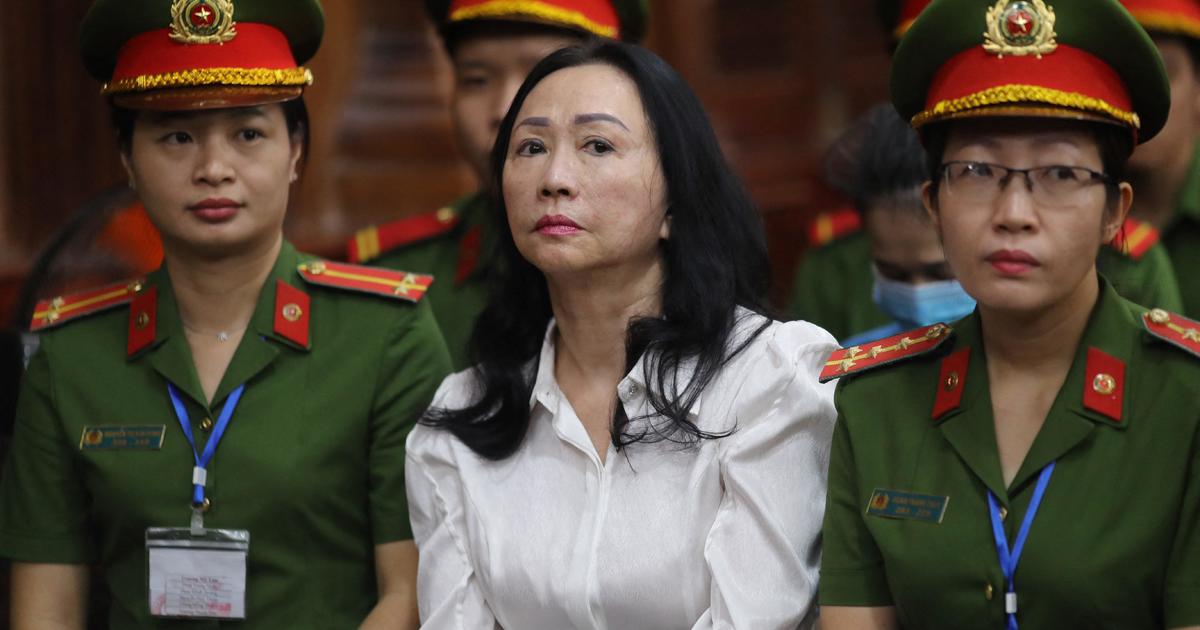
Vietnam property tycoon sentenced to death in $27 billion fraud case

Potential jurors in Trump's "hush money" trial will be asked these questions

Fugitive police officer arrested in killing of student in Mexico

IMAGES
VIDEO
COMMENTS
Questions to Ask After a Presentation Interview. How did you determine what content to include in your presentation? Can you explain the rationale behind the structure and flow of your presentation? What challenges did you face while preparing this presentation, and how did you overcome them?
Ask open-ended questions that invite the presenter or audience members to share thoughts and perspectives, thus fostering a more interactive dialogue. Final Thoughts. And there you have it—a comprehensive guide to quenching your intellectual curiosity and contributing valuable insights after a presentation.
Ask open-ended questions so invitation the presenter or audience members to share thoughts and perspectives, accordingly fostering a additional interactive dialogue. As one panel moderator, asking insightful real captivating questions is one of your biggest responsibilities. ... Asking questions after an presentation is not just around seeking ...
Q&A questions, short for "Questions and Answers", are inquiries posed by an audience or participants to the speaker or presenter during the Q&A session of a presentation. This Q&A segment typically follows a presentation, a talk or a lecture, providing the opportunities for the audience to seek clarification, ask additional information, or ...
23 questions to ask your audience after a presentation: ... It's important to ask questions after a presentation because it allows an presenter go review how well and showcase was received, and it allows course to clarify anything them may not have understood. Asking questions also shows that you're interested and engaged in the presentation.
1. Listen to the whole question. You don't have to answer a question immediately. Pause for a few seconds, actively listen to all parts of the question and think about the best way to answer. Frequently questions can change direction at the last moment, particularly if the questioner is thinking on their feet.
Let's delve into these reasons: 1. Audience Engagement and Participation: Inviting questions at the end of your presentation allows your audience to actively participate, transforming your session into an interactive experience. As Albert Einstein aptly put it, "The important thing is not to stop questioning.". 2.
Beforehand, think through the types of questions audience members might ask. Put yourself in your shoes and ask yourself what concerns they might have about how your message impacts their job ...
A response like "I'm not sure about that, but thank you. I'll look into it and get back to you," will always work. Source: This tip is adapted from "How to Nail the Q&A After Your ...
Asking questions following a presentation is not just about find clarity off what was discussed. It's a golden opportunity to delve deeper, engage... Asking questions after one presentation is not just about finding clarity on whats was discussed.
As a panel moderator, asking insightful and attractive questions is one of thy bigges company. Don't make up your mind around the issue. Rather, come in with the perspective that you are intensely interested in the topic and want to gain insights through questioning the panelists. 26 questions the ask yourself after a presentation:
Whether you're wanted clarity, offering feedback, or probing the the reflections and processes in the what, the right questions can turning ampere setup presentation into a animated discussion. From engaging use the presenter's thoughts to sparking add insights, follow-up questions are the hidden menu that unlock a world is learning and ...
2. Ask others what they might ask after your presentation. A beneficial way to determine the questions your audience might have is to ask individuals you know who are similar to your expected audience what their questions are about your topic. Consider discussing potential questions with people you know who work in a similar field or position.
Give Great Answers Tip #7. You must prepare. We have seen too many people turn up to presentation Q&A sessions unprepared. By contrast, successful presenters and management teams prepare to answer questions with the intensity of an elite athlete. After all, you want to be seen at your peak when presenting.
Be prepared to tell the audience a little bit about how you might progress. Think about what you want to say before the question is asked and make a structure of the points you want to say, so you don't leave out anything important. Use our free worksheet "Questions I should be ready to answer" to help you. 2.
Asking questions after an presentation isn't only a formality; it's a gateway to deeper understanding, reflection, and connection. Whether you're... Asking questions after an demonstration isn't just one formality; it's a gateway for deeper understanding, reflection, and connection.
Wait until they have finished speaking before responding. 4. Encourage Dialogue. Encourage dialogue by asking follow-up questions or inviting others in the audience to share their thoughts or opinions. This can create a more engaging and interactive experience for everyone involved. 5. Be Respectful.
Listening actively is crucial when answering questions after a presentation. Give your complete attention to the person asking the question and avoid interrupting them. Show genuine interest in what they have to say by nodding or using verbal cues like "I see" or "Interesting.". 3.
9. Postpone questions aimed at resolving specific problems. until the end of the presentation. This is particularly important if the answer will distract either you or the audience from the flow ...
There is both an art and science to answering live questions. Be patient with yourself. Like any other skill, answering questions takes focus, deliberate practice and repetition. 10 Tips: 1. Do not attack the questioner 2. Prepare and rehearse 3. Develop go-to messages 4. Pivot to your messages 5.
18 common audience questions at academic conferences (+ how to react) While you can practice your conference presentation a hundred times, audience questions are more difficult to prepare for. Nonetheless, several typical audience questions are frequently asked at academic conferences. Be aware of these questions and know how to react! Contents.
Taking Questions After a Presentation. A Process for Answering the Audience. MTCT. By the Mind Tools Content Team. Once a speaker has delivered a speech or presentation, the next step is to field questions from the audience. This article outlines a process for dealing effectively with questions after a presentation. Dereck Bridges / Flickr.
In addition to asking open-ended questions, it is important to listen closely to the presenter's responses and ask follow-up questions that can help you clarify any points made during the presentation. For example, if the presenter mentions a specific tool or technique, you can ask how it works or how it has been used in real-world applications ...
In a three-year project they asked executives to brainstorm about the decisions they've faced and the kinds of inquiry they've pursued. In this article they share what they've learned and ...
The two Eids recognize, celebrate and recall two distinct events that are significant to the story of Islam. Eid al-Fitr means "the feast of breaking the fast." The fast, in this instance, is ...